A Publication of the Texas Association of School Boards | Volume 42, Number 8 | September/October 2024

THROUGH THE YEARS
SCHOOL LEADERS’ NEEDS TAKE CENTER STAGE AT ANNUAL EVENT

A Publication of the Texas Association of School Boards | Volume 42, Number 8 | September/October 2024

THROUGH THE YEARS
SCHOOL LEADERS’ NEEDS TAKE CENTER STAGE AT ANNUAL EVENT
AUSTIN • OCT. 24-25

TASB Officers 2023-24
Armando Rodriguez, President, Canutillo ISD
Rolinda Schmidt, President-Elect, Kerrville ISD
Tony Hopkins, First Vice President, Friendswood ISD, Region 4C
Mary Jane Hetrick, Second Vice President, Dripping Springs ISD, Region 13B
Dan Micciche, Secretary-Treasurer, Dallas ISD, Region 10C
Debbie Gillespie, Immediate Past President
TASB Board of Directors 2023-24
Moises Alfaro, Mathis ISD, Region 2
Jesus Amaya, Los Fresnos CISD, Region 1A
Rose Avalos, Aldine ISD, Region 4A
Carlos Bentancourt, Slaton ISD, Region 17
Lynn Boswell, Austin ISD, Region 13A
Darlene Breaux, Alief ISD, Region 4B
Steve Brown, Ector County ISD, Region 18
Kevin A. Carbó, Mesquite ISD, Region 10D
Justin Chapa, Arlington ISD, Region 11C
Julie Cole, Hurst-Euless-Bedford ISD, Region 11A
Thomas Darden, Cooper ISD, Region 8
Dynette Davis, Frisco ISD, Region 10E
Angela Lemond Flowers, Houston ISD, Region 4D
Rebecca Fox, Katy ISD, Region 4E
Ginger Friesenhahn, East Central ISD, Region 20A
Sylvia Sánchez Garza, South Texas ISD, Region 1B
Linda Gooch, Sunnyvale ISD, Region 10B
Angie Hanan, Fort Bend ISD, Region 4G
Carol Harle, Northside ISD-Bexar County, Region 20B
Tricia Ikard, Maypearl ISD, Region 10A
Mark Lukert, Wichita Falls ISD, Region 9
Kathy Major, Liberty Hill ISD, Region 13C
Raymond P. Meza, San Felipe Del Rio CISD, Region 15
Cynthia Najera, Socorro ISD, Region 19
Steven Newcom, Eagle Mountain-Saginaw ISD, Region 11D
Nicholas Phillips, Nederland ISD, Region 5
Quinton “Q” Phillips, Fort Worth ISD, Region 11B
Margaret Pruett, Victoria ISD, Region 3
Beth Prykryl, New Caney ISD, Region 6A
Tony Raymond, Sabine ISD, Region 7
Rich Sena, Boerne ISD, Region 20D
Cindy Spanel, Highland Park ISD-Potter County, Region 16
David Sublasky, ESC 19, ESC Representative
Theresa Wagaman, Conroe ISD, Region 6B
Mildred Watkins, La Vega ISD, Region 12
Greg Welch, Clyde CISD, Region 14
SEPTEMBER
OCTOBER
NOVEMBER
JANUARY
Correction
In the August issue of Texas Lone Star, the subhead on the Legal News column on page 22 should have read: Understand the guidelines before you post that comment


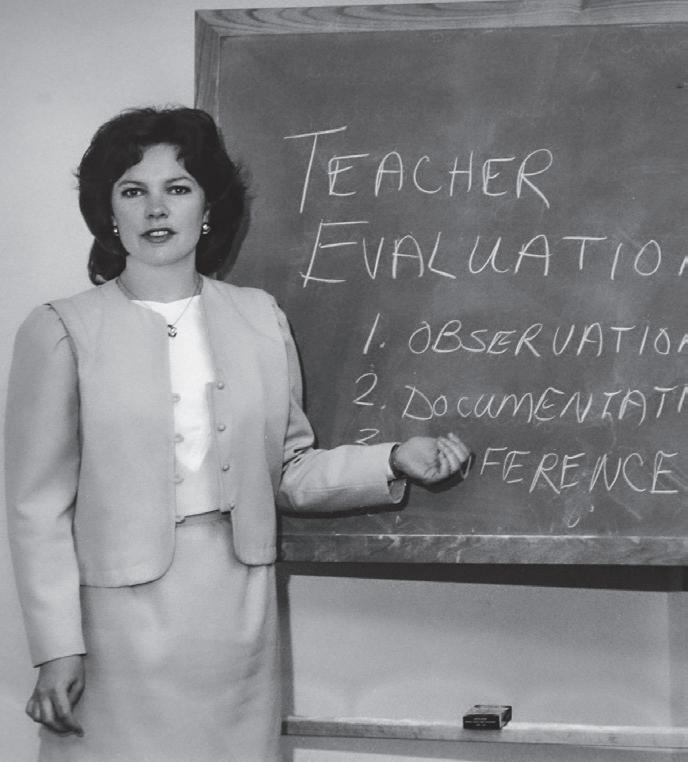
School leaders' needs take center stage at annual event
txEDCON24 offers district leaders in-depth training
Texas Lone Star • Volume 42, Number 8
Texas Association of School Boards
P.O. Box 400 • Austin, Texas • 78767-0400 512-467-0222 • 800-580-8272
Laura Tolley • Managing Editor Shu-in Powell • Graphic Designer
Lalo Garcia • Photographer 360 Press Solutions • Printer
Contributors: Sylvia Wood, Beth Griesmer, Mary Ann Lopez, Theresa Gage-Dierginer, Melissa Locke Roberts, Denise Carter, Dax González, Denise Schulz, Vanessa Diamos
Texas Lone Star (ISSN 0749-9310) is published 10 times a year by the Texas Association of School Boards. Copyright© 2024 by the Texas Association of School Boards (TASB). All rights reserved. Reproduction, adaptation, distribution, and exhibition in whole or in part are prohibited under penalty of law without the written license or permission of TASB. Copies of Texas Lone Star are mailed to trustees of TASB member school boards and their superintendents as part of their membership. Subscriptions are available to nonmembers for $36 (1 year), $69 (2 years), and $99 (3 years). Single copies are $5.
Address changes should be sent to Michael Pennant, TASB, P.O. Box 400, Austin, Texas 78767-0400.
Articles in Texas Lone Star are expressions of the author or interviewee and do not represent the views or policies of TASB. Permission to reprint should be emailed to communications@tasb.org or addressed to the Managing Editor, P.O. Box 400, Austin, Texas 78767-0400.
Texas Lone Star does not guarantee publication of unsolicited manuscripts.
Postmaster: Send address changes to TASB, P.O. Box 400, Austin, Texas 78767-0400.



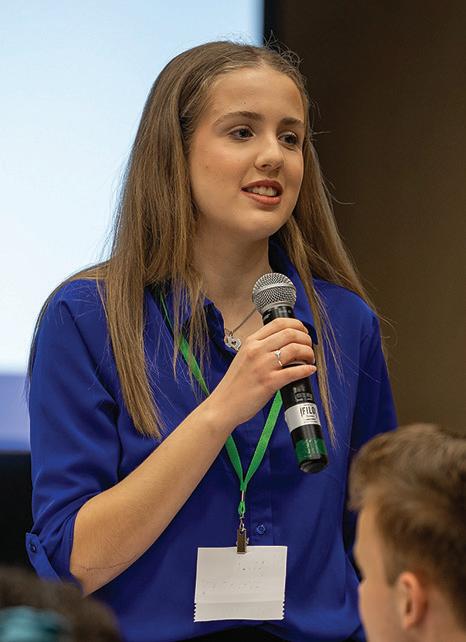



MARCH 5-8, 2025
GALVESTON ISLAND CONVENTION CENTER

BE PART OF CAMP!
OPPORTUNITIES OPEN OCT. 1
Submit your session proposals, Student Voice scholarship applications, and student demonstration proposals starting Oct. 1 at tasb.org/gov-camp. Registration opens Jan. 14.


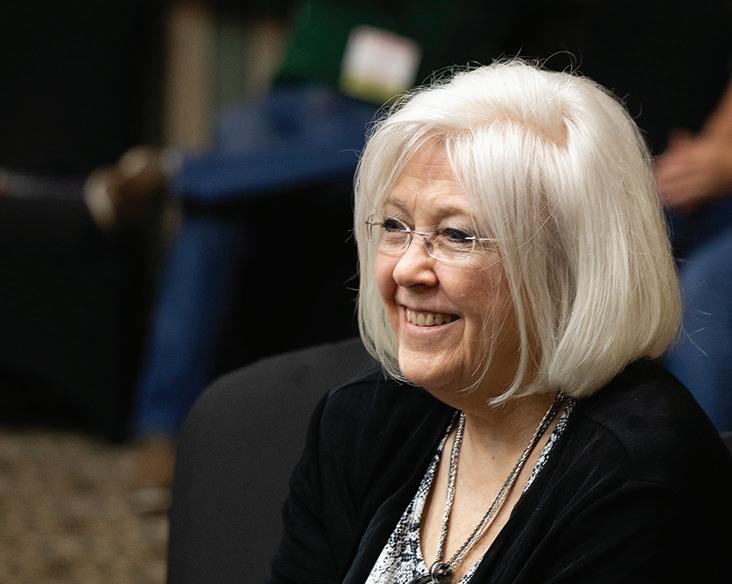
WE’LL SEE YOU AT CAMP!

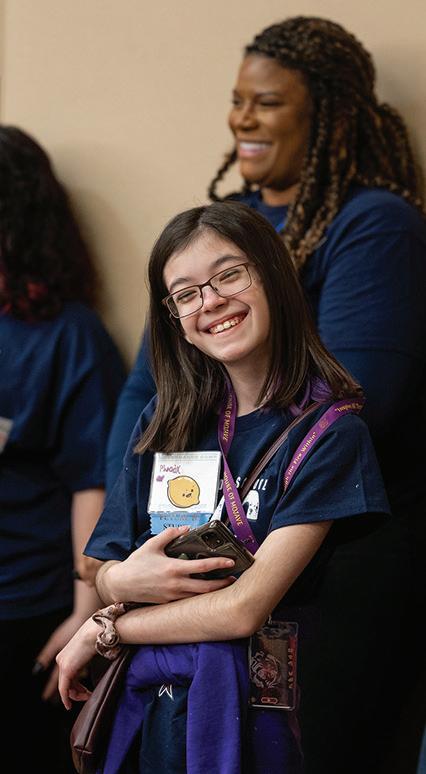
by Armando Rodriguez
As I prepare to bid farewell to my term as TASB president during the upcoming txEDCON24 in San Antonio, I find myself reflecting on a journey that began nearly two decades ago.
I still remember my first TASB conference in Dallas. I was a young trustee, eager to learn, make connections, and find ways to move my community forward. That conference, and many others since, became pivotal moments in my career, shaping my dedication to public education and my commitment to serve.
From those early days, txEDCON has grown to be more than just a conference for me. It has become a place where I connect with some of the state’s top education advocates, learn about innovative strategies, and gather insights on how to better the educational opportunities in my community. It’s a reunion of minds and hearts committed to the noble cause of public education. I look forward to seeing all of you in San Antonio, ready to share stories, challenges, and victories once more.
This past year as TASB president has been one filled with immense pride and a few challenges. I am incredibly proud of the work TASB continues to do in advocating for public education. Our leaders are relentless in their pursuit of excellence, always seeking new ways to improve the lives of children across Texas. The strides we’ve made this year are a testament to their unwavering dedication and innovative spirit.
I want to extend my heartfelt gratitude to the TASB staff. Your diligence and support have made my presidency
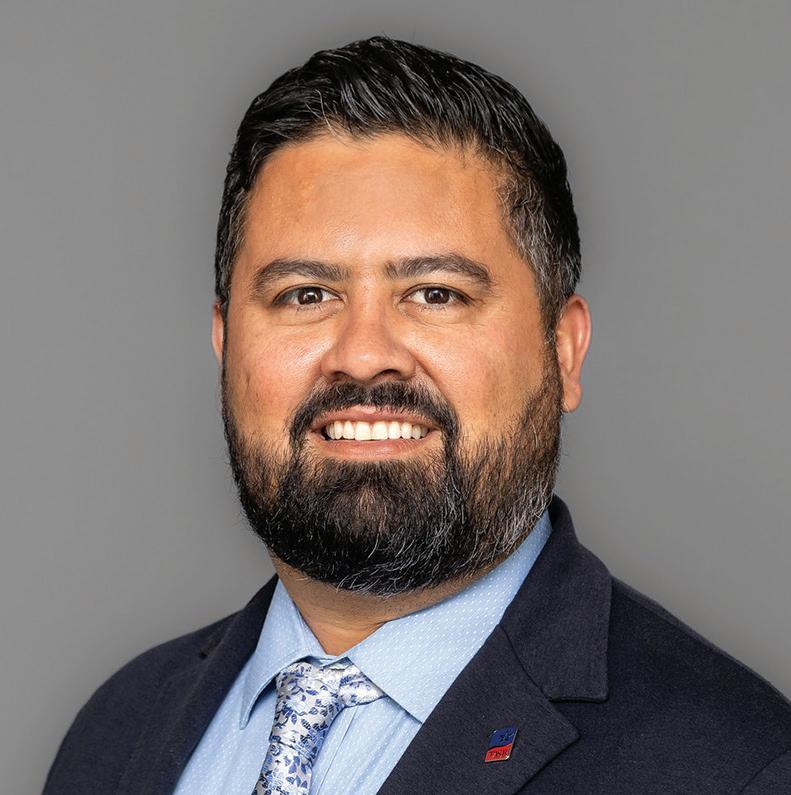

a smooth and fulfilling experience. Your knowledge, guidance, and patience have been invaluable, especially as I navigated the challenges of this role. Your commitment to our shared mission has been a blessing, and I am deeply thankful for your unwavering support.
My journey would not have been possible without the incredible support of the Canutillo and El Paso communities. This year marks the first time an El Pasoan has led TASB since the 1990s, and together we’ve demonstrated that the border is a leader in public education. The level of support for Texas public schools along the Texas-Mexico border is strong and vibrant. Canutillo, you provided me with a formative education and instilled in me a deep love for public service. For that, I am eternally grateful. ¡Viva Canutillo!
As I step down from the presidency, I am excited to continue serving TASB as
past president. I am confident that incoming TASB President Rolinda Schmidt will lead with wisdom and vision. Her foresight and knowledge will undoubtedly help us achieve new goals and continue the important work of improving public education in Texas.
To all the trustees, educators, and advocates I’ve had the pleasure of working with, thank you. Your passion and dedication inspire me every day. As we gather in San Antonio for txEDCON24, let’s celebrate our achievements and gear up for the work ahead. Together, we can continue to make a difference in the lives of children across Texas.
See you in San Antonio!
Armando Rodriguez, president of the Canutillo ISD board of trustees, is the 2023-24 president of TASB.
Delegate Assembly provides a way to keep abreast of what’s going on and voice the concerns of my district.
Amy Jarvis, Navasota ISD (Region 6)
I attend Delegate Assembly because I want to know the issues that public schools are facing. It also helps me understand that our district is not unique in its issues.
Beth Walterscheidt, Elgin ISD (Region 13)

by Laura Tolley
We’re ready for txEDCON24!
The annual convention, hosted by TASB and the Texas Association of School Administrators, represents the largest gathering of public school leaders in Texas. It’s a remarkable opportunity for your leadership team to learn about new programs and initiatives, network with other districts, and generally just thrive in a setting devoted to public ed and students.
Longtime Ingleside ISD Trustee Teresa Flores, who was the 2017-18 TASB president, said the convention provides school board members “a wealth of information while having fun. … There is nowhere else that I can think of where you have that many trustees all together in one place sharing and caring for one another.”
the ride back home. They took that idea a step further by hosting a joint convention in 1960, and the rest, as they say, is history.
And yes, it’s amazing to experience the energy and enthusiasm at the annual convention. Attendees’ dedication and determination to provide the best education possible for the students in the districts they love makes this event different. It’s pretty powerful.
As I researched the convention’s history, I also learned how organizers have always been focused on providing a comprehensive learning experience for all attendees. To do so, they gather input each year from members on what they need to be better school leaders.
In addition to the history story about convention, we also have a preview story
"There is nowhere else that I can think of where you have that many trustees all together in one place sharing and caring for one another."
— Teresa Flores, Ingleside ISD trustee
I reached out to Flores and a couple of other trustees for a story this month about the history of the annual convention, which began in 1960. The story, which begins on page 8, is part of a yearlong history project highlighting TASB’s 75th anniversary.
TASA and TASB met separately for many years. But they held their meetings at the same time and in the same city because that gave the leadership teams a chance to discuss what they learned on
about txEDCON24, which begins on page 12. The gathering, to be held Sept. 27-29 in San Antonio, will include guest speakers, sessions, workshops, exhibits, and more.
Another important feature of txEDCON24 will be Delegate Assembly, scheduled for Sept. 28. At Delegate Assembly, members vote on the overall direction of the Association and its advocacy work.
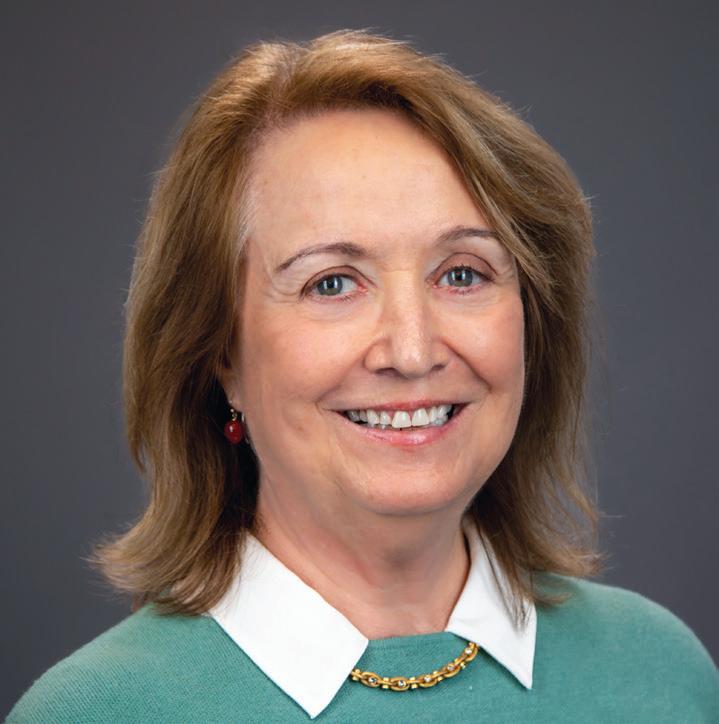
Laura Tolley
Dax González, division director of TASB Governmental Relations, writes about the importance of attending Delegate Assembly in his Capitol Watch column on page 24.
HR Services celebrates a milestone TASB’s HR Services was established 40 years ago. Do you know why? TASB, once again, was responding to members’ needs. Changes mandated by House Bill 72 back in 1984 impacted human resources, along with other public school operations. As school districts worked to overcome this challenge, TASB stepped up to help by establishing HR Services.
We talked to Cindy Clegg, the inaugural director of HR Services, and Amy Campbell, its current director, about the division and how it has enhanced and expanded its services over the years. I didn’t realize Campbell was working at a school district when she came to TASB for some training — and she was very impressed by that first experience!
Read about the advice Clegg gave Campbell long ago, and how she still employs it today to serve members. Their conversation, which starts on page 18, shows the respect and admiration these two amazing women have for each other — and their members.
I hope you enjoy the issue!

Laura Tolley is managing editor of Texas Lone Star.
by Laura Tolley
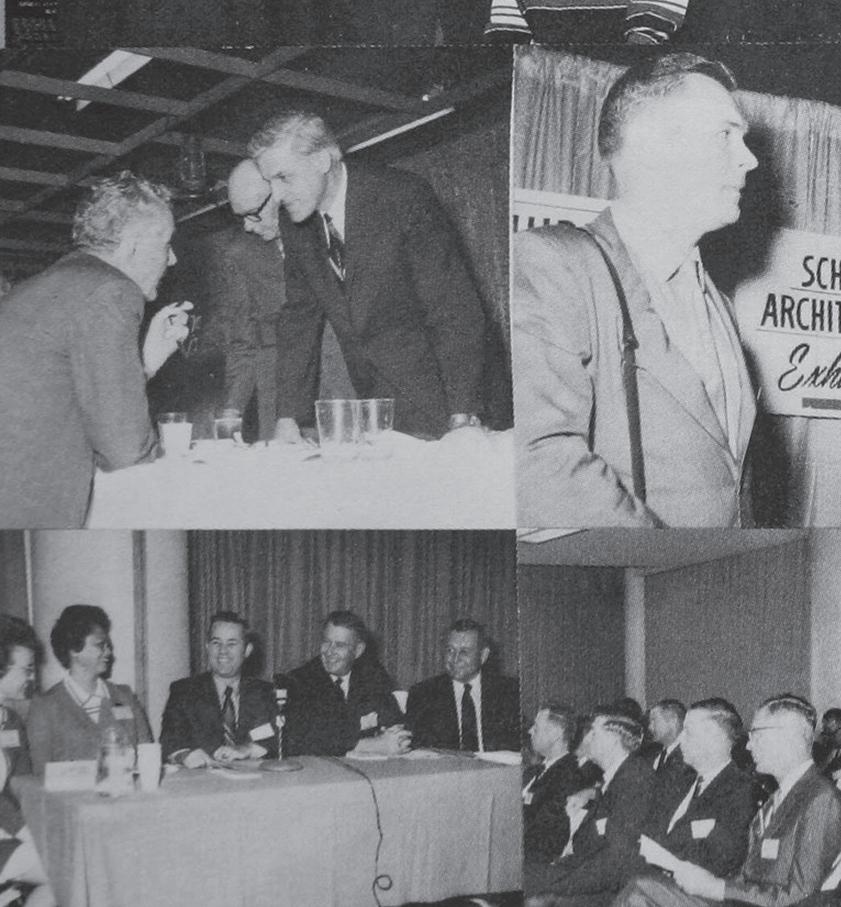
Editor’s note: In every issue of Texas Lone Star this year, the magazine will honor TASB’s 75th anniversary by writing about the positive impact the Association has had on Texas public schools through its high-quality services, visionary leadership, and skilled advocacy. Additionally, these articles will highlight the significant events, people, legislation, and issues that have shaped public education in Texas. Overall, these articles reflect how TASB and school leaders work hard together to promote educational excellence for all Texas schoolchildren.
For Mesquite ISD Board President Robert Seward, attending his first TASA | TASB Convention more than three decades ago as a new trustee was an enlightening experience filled with insightful training sessions, inspirational speakers, and meaningful networking opportunities.
“Looking back, that first convention was the spark that set off this amazing journey in educational leadership. It really opened my eyes to the big picture and showed me just how much we can achieve when we put our heads together and speak up for what matters,” said Seward, who served as TASB president in 2008-09.
Seward shared his first convention experience in 1993 with fellow board members and his superintendent, and he has continued to return to the annual event nearly every year since.
“Let me tell you, the TASA | TASB Convention is a big deal for us trustees and school leaders — and that’s putting it mildly! This yearly get-together is like a powerhouse of knowledge, growth, and community all rolled into one,” said Seward. “It’s where the magic happens in shaping Texas education leadership.
“Imagine being in a room buzzing with the latest trends, policies, and best practices in education at your fingertips. It’s an opportunity to gain invaluable tools for advocating effectively for schools and students, while also enhancing your ability to govern at the local level,” he said.
Attending the event through the years allows Seward, and thousands of other trustees


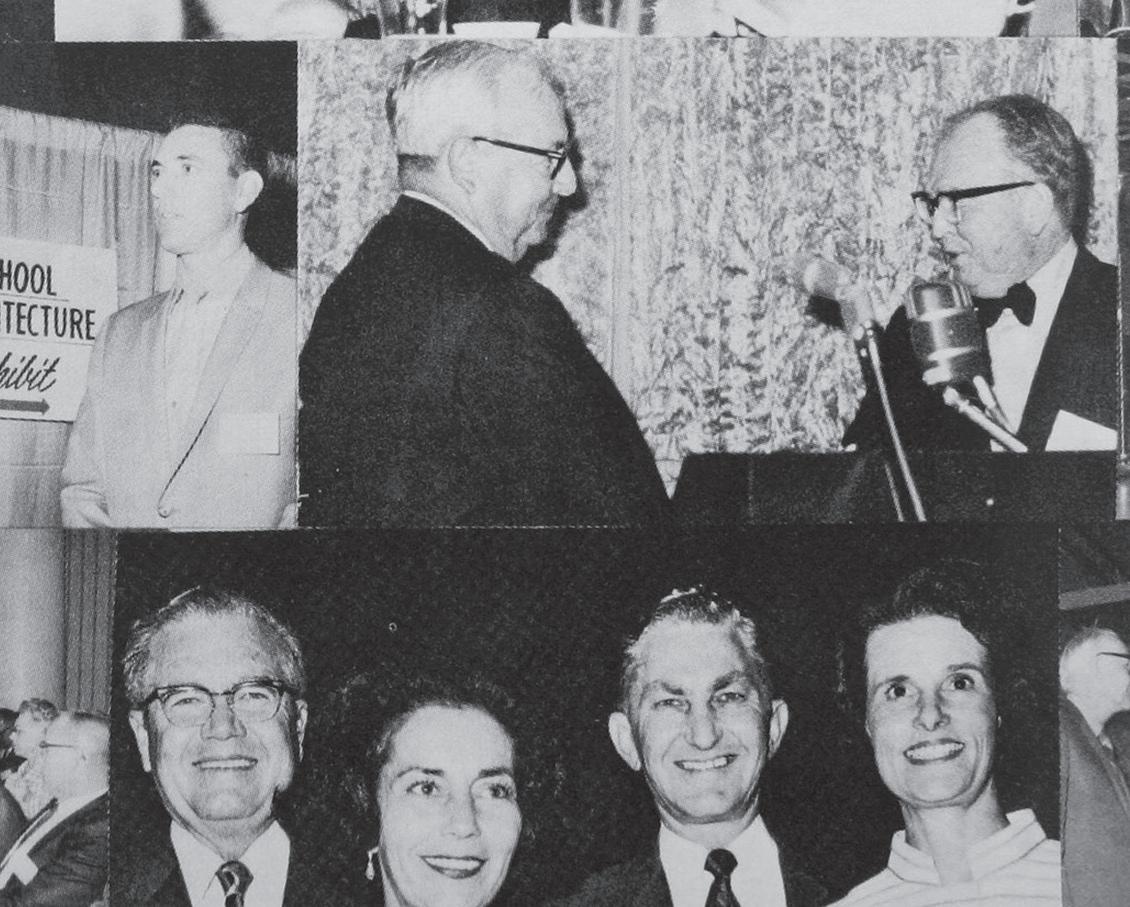
and superintendents, to be at the forefront of learning about educational advances and to be part of the evolution of educational leadership.
In the 1950s, TASB and the Texas Association of School Administrators met separately, but at the same time and place, because the groups found it was beneficial for attendees to the two meetings to travel together, attend their separate events, and then discuss what they learned on the trip home. The two groups did hold a banquet together.
Prompted by then-TASB Executive Director Donald Nugent and then-TASA President Charles Mathews, the two organizations decided to take the power of learning a step further by holding a joint convention in 1960. Organizers from both groups coordinated to provide one program for all participants.
“In the opinions of the participants and planners … the experience was a success,” reported the Texas School Board Newsletter in October 1960. TASA didn’t keep an attendance record for the first event, but TASB reported that 265 trustees from 119 districts had registered.
Over the years, the convention has become the annual destination for public education leaders from around Texas who gather to network, hear from state officials and other leaders, and hone their governance and leadership skills through a range of training sessions. Now called txEDCON, the gathering is the largest assembly of state public education decision makers.
The venue alternates between Texas’ largest cities, the standout student performances vary, and the keynote speakers change, but the focus throughout the past 64 years has remained the same: provide a comprehensive learning experience designed to meet the needs of attendees who want to strengthen their governance and leadership skills as they work to provide the best education possible to their students.
“It’s incredibly inspiring to be surrounded by so many people devoted to public education in Texas,” said TASB Executive Director Dan Troxell. “There is this tremendous power in having us all in one place at one time, learning together and renewing our commitment to the 5.5 million Texas public school students who deserve an excellent education.”
With the theme “New Frontiers in Education,” the first joint convention kicked off on Sept. 24, 1960, in Austin at the Driskill Hotel and Paramount Theater. The registration fee to the two-day event was a dollar, while the banquet fee was $3 and a luncheon cost $2.50.
The convention pamphlet noted the reasoning for the joint endeavor: “To name but a few, we face frontiers in financing education, in administering education, in improving the quality of education through the addition of programs and techniques, in meeting the challenges of a growing school population in an ever-expanding world. All of these frontiers and others pose new problems, and, in many cases, indicate the need for new solutions. It is in the hope that the 1960 Annual Meetings of the Texas Association of School Administrators and the Texas Association of School Boards can help to provide a preview of the ‘New Frontiers in Education’ and a glimpse of the new decisions that we meet in Austin in September 1960.”
Some of the 11 “Topic Group Sessions” covered issues that remain relevant today, including school financing, board-superintendent relations, and the state’s role in public education. There were no exhibits.
The breakout sessions’ structure was similar to today’s, with a combination of experts in a certain field. For example, the Evaluation of School Programs session featured the Waco ISD superintendent, the dean of the College of Education at The University of Texas, a Midland ISD board member, a staff member from Andress ISD, and Richardson ISD’s superintendent.
At the keynote session, Texas State Commissioner of Education J.W. Edgar gave an address called “New Developments in Texas Public Education.” Roy M. Hall, assistant commissioner for research at the U.S. Office of Education, also spoke to the crowd.
Adding features, changing venues
“That first convention set the tone for decades of successful annual events,” said Jackie Clark Spencer, director of event operations and convention for TASB Communications, Marketing, and Events. “As we continue to enhance the experience each year, we seek input from our members on what they need to help improve their skills as school leaders for the benefit of their students. It’s always about the kids.”
Austin’s new Municipal Auditorium was the site for the second convention. Of the 13 group sessions offered, three were individual forums for large, medium, and small districts. Some 1,200 participants attended, including 330 board members from 160 school districts.
“This convention provides the only opportunity for the local management officials for Texas Public Education to confer together on a statewide basis; to consider the issues and developments facing the schools; and to jointly design constructive approaches to the solution of statewide educational problems,” TASB President W.H.B. Fehl and TASA President J.D. King said in the event’s pamphlet. “We trust that those of us who do meet in Austin September 24 and 25 will return to our schools and communities with new knowledge to enable us to do a better job and new enthusiasm to make our work more challenging and productive. The boys and girls of Texas deserve the best leadership so that this goal may be reached.”


That second event was the first year for commercial exhibits, 42 in all. The next year, organizers added a Texas school architecture exhibit that included one on air-conditioned schools. Both features have continued to grow and evolve each year and are huge attractions at txEDCON.
After being held in Austin for a decade, the convention moved to San Antonio in 1971, where it was held until 1989. Beginning in 1990, the host site alternated between Houston and Dallas for many years. This year, txEDCON24 is being held in San Antonio.
Breakout sessions and special seminars have long been central convention components.
“We’re always learning, and we want that for our members too,” Spencer said. “We work on the agenda through the year, and we’re always laser-focused on understanding and meeting members’ needs. We have always sought their input, and we also get session proposals from members. We want to offer best practices – but we also want to be forward thinkers and offer next practices.”
The wide range of sessions are hosted by district leaders, TASA and TASB staff members, and other education leaders. Access to these deep-learning opportunities has been an important aspect for Teresa Flores, a longtime trustee of the Ingleside ISD board and 2017-18 TASB president.
“I have been attending the TASA | TASB Convention since 1999, which is the year that I was first elected to the board. I chose to attend to educate myself on my new role as I believe that no one is born knowing how to be a school board member, and like any other job, training is required to be able to do the best job you can,” Flores said. “My first convention was a great experience. I remember coming back excited and motivated about all the great ideas that had been presented.”
Flores attended her inaugural gathering and others since with fellow trustees, a common tradition that dates back to the first event and the why behind the gathering: Give school leaders the opportunity to learn together. In addition, networking opportunities with other district officials abound for attendees — formally and informally.
“Networking is another component. Making friends across the state provides valuable resources when important issues are being addressed. As school boards face many challenges, there is no need to recreate the wheel,” Flores said. “More than likely, your challenge is not unique and there are others who
have faced the same issue who can provide insight into what has worked and what has not worked. TASB is the hub of the wheel that brings all of these resources together.”
For Flores, these interactions have been powerful over the years. “It is a great reminder that as we experience challenges and successes in our local districts, we are not alone and have many resources to assist in the needs of our school districts. There is no place else that I can think of where you have that many trustees all together in one place sharing and caring for one another.”
Organizers have worked hard to expand session offerings while also adding seminars and events. Early-bird sessions were added in 1991. A session called Suggested Curriculum for New Board Members came in 1991. TASB created the small district seminar in 2007 specifically for those district leaders. There have been several iterations of training sessions designed for new school board members and for board officers over the years. There also have been educational field trips and other events.
Another convention highlight features special speakers, including many state leaders such as Govs. John Connally, Preston Smith, Dolph Briscoe, Ann Richards, and George W. Bush. Sen. John Tower, R-Texas, addressed the 1967 event. Past gatherings also have sparkled with top entertainers such as Tammy Wynette, B.J. Thomas, and Ronnie Milsap. And there are inspirational general session speakers each time.
Organizing each convention is a massive undertaking involving many staff members working on the project throughout the year to ensure a smooth operation chock full of learning opportunities — all at a reasonable cost. Spencer notes that TASB works hard to keep costs down for attendees; the event is not a revenue generator for either organization. In fact, fees were waived for TASA and TASB members back in 2011 and 2012 because of the budget cuts that hit districts hard those years.
Among the many logistical challenges faced by organizers is housing. Finding enough rooms within walking distance to the event venue is no easy feat. In the early years, a lottery system was used to allocate those coveted hotel rooms, but modern technology ushered in a more efficient online registration system in 1999.
Not everything always goes as planned. Houston was scheduled to be the host site back in 2005 until hurricanes Katrina
and Rita wreaked havoc on the Gulf Coast. Organizers scrambled successfully to move the gathering to Dallas a month later. There wasn’t time to do a new housing reservation process, so organizers worked with vendor partners to find housing options in Dallas that closely matched those in Houston. They also had to work on booking vendors in the exhibit hall and helping to get their materials shipped from Houston to Dallas since booth materials were on loading docks when the event was postponed.
When COVID-19 shut down the world in 2020, the entire convention became a virtual event, even the exhibit hall. Several opportunities were provided for participants to share their successes and challenges related to the pandemic. It was an unprecedented time. As the pandemic eased, the 2021 convention went back to being held in person.
Among the highlights of the convention each year are district performances that provide a unique opportunity to showcase student talent and give kids the experience of performing before a large gathering. It’s been a longstanding tradition, more than 30 years, to invite the districts of the current TASB and TASA presidents to perform at the event.
Students in supporting roles are also given the opportunity to work backstage along with audiovisual experts, so it’s not just the performers who benefit from this experience.
Students have provided musical, theatrical, and dance performances, as well as artistic displays. The programming decisions are up to the participating districts.
Back in 2009, when Seward was president, his district was invited to do a student performance at the convention. It’s a special memory for him.
“The highlight was undoubtedly the performance by the Mesquite ISD students. Their presentation was exceptional, truly showcasing
the talent nurtured in our public schools. I remember expressing to the audience how incredibly proud we all were, not just of these performers, but of all our students across Texas,” Seward said. “These young people embodied the future of Texas public education.”
Flores had a similar emotional experience regarding her district’s student performance.
“My favorite convention would be 2018 as I completed my term serving as the president of the TASB Board of Directors.
I will never forget having the opportunity to showcase my school district and represent all the great things that are happening in our public schools,” she said.
For both newcomers and those who have been attending for years, even decades, txEDCON continues to be a vital place to focus on public education in Texas and what it means to children, their families, their communities, and the state’s future. It’s a place where attendees thrive in all things public ed.
Bret Begert, board president at Fort Elliott CISD, attended his first convention in 1998. Begert served as TASB president in 2015-16.
“I have enjoyed every convention, from the classes and sessions to Delegate Assembly to bonding with fellow trustees and public education enthusiasts. It comes at an exciting time in the beginning of the school year, and I always learn and feel like it makes me a more educated and productive board member,” Begert said. “Every student’s success is our main goal, and convention provides the training in the board’s role in the process. It is time well spent.”
See you soon in San Antonio!
Laura Tolley is managing editor of Texas Lone Star

• It cost $1 to register to attend the first joint TASA | TASB Convention, which was in 1960 in Austin.
• Commercial exhibits began at the first gathering in 1961. The first school architecture exhibit was added in 1962 and featured air-conditioned schools.
• Convention moved from Austin to San Antonio in 1971, where it stayed through 1989.
• Board training requirements went into effect at the 1986 convention, mandated by the Texas Legislature.
• The first Distinguished Lecture series was held in 1987, highlighting research and well-known speakers.
• For many years, convention featured a musical performer and dance on Saturday night. B.J. Thomas, Louise Mandrell, Conway Twitty, Michael Murphy, Ray Price, and Tammy Wynette were featured, among others.
• Until 2004, convention was hosted Saturday through Monday, so board members could attend training sessions on weekends — and not miss Friday night football district games!
• In 2005, coastal damage and evacuations from hurricanes Katrina and Rita forced the cancellation of the convention planned for Houston. It was quickly rescheduled and held just 30 days later on October 28–30 — in Dallas!
• Recently added to the mix were field trips, Small District Seminars, and a Digital Learning Pavilion in the exhibit area.
• Convention also is the site for the announcement of two special awards: TASA’s Honor Board winner and TASB’s Superintendent of the Year winner.
txEDCON24 OFFERS DISTRICT LEADERS IN-DEPTH TRAINING by Mary
Ann Lopez
Ideas. Insights. Inspiration. Shaping Public Education Together
Making their way from locations far and wide across Texas, thousands of school trustees and administrators will gather Sept. 27-29 at the Henry B. González Convention Center in San Antonio for txEDCON24, the premier annual training event for public education leaders.
The flagship gathering hosted by the Texas Association of School Administrators and TASB offers district superintendents, trustees, and teams of eight the opportunity to network, connect, and access in-depth programming to support them in their board governance and leadership roles.
“Every year, we at TASB really look forward to txEDCON because we know how important the event is for those who serve their local school communities,” said Dan Troxell, TASB executive director.
“This event provides trustees and administrators with quality training and the opportunity to connect and collaborate, which ultimately benefits public schoolchildren in Texas. We know that those who attend always leave feeling inspired, recharged, and ready to continue doing the challenging and rewarding work needed to support excellent student outcomes.”
This year’s event will feature some 150 sessions that registrants can choose from. All of the training is designed with the goal of improving governance and leadership in Texas public schools and enhancing statewide support for public education.
One session that is always a big hit with txEDCON attendees is the Small School District Seminar, said Jackie Clark Spencer, director of event operations and convention for TASB Communications, Marketing, and Events. The program is designed for school systems with 999 or fewer students and focuses on how small districts across the state can implement creative solutions to overcome their challenges while also leveraging the advantages they offer.
“We have so many small school districts in Texas and their needs are so different, which is why this seminar is so important,” she said.
This year’s seminar, which kicks off on Friday, Sept. 27, has a new feature — a keynote speaker. Melanie Mayer, a small schools graduate, educator, author, and speaker, will talk about the legacy of small schools. The session will spotlight Alpine ISD Superintendent Michelle Rinehart, who will focus on small school finance and driving change at districts. And Brian Woods, TASA deputy executive director of advocacy, will discuss promoting change through advocacy. Preregistration is required to attend.
New board members and new board officers have training sessions designed specifically to support them in their service. Texas Trustee Institute was created for new board members who are just beginning their board service, and Board Officer Institute is offered for trustees who are new to officer roles or who would like to take on an officer role.
During the two-day TTI, attendees will get specialized training to be successful and collaborative members of their boards, while also having an


opportunity to network with other new board members. Trustees will learn more about the Texas Open Meetings Act, district policy basics, working as a body corporate, and school law.
BOI is a one-day program that offers the in-depth training new board officers need to effectively prepare for and facilitate board meetings, keep meetings focused, and build collaborative board-superintendent relationships.
Preregistration is required to attend either TTI or BOI.
While txEDCON24 technically kicks off on Friday, there are several preconference sessions that are being offered on Thursday, including:
• AI – A Collaboration of Educators, Students, Parents, and Policymakers
• Beyond the Meeting: Elevating School Board Communication Strategies and Practices
• Evaluating and Improving Student Outcomes: The Board’s Role in Continuous Improvement
• Unleashing Potential: Transformative Practices for Tomorrow’s Education Leaders
Also on Thursday, the Texas Council of School Attorneys will meet, and an opening reception will be held in the Exhibit Hall 5-6:30 p.m.
Along with all the training that will be offered during txEDCON24 — it’s worth noting that Spencer said participants earn roughly 16,000 hours of continuing education credit every year — there will also be outstanding student performances, which are always crowd pleasers. Students from Tomball and Canutillo ISDs will entertain attendees, sharing their talents during the general sessions on Friday and Saturday.
In addition, the Outstanding School Board Award and TSPRA Key Communicator recognition will take place
Friday, with the Superintendent of the Year announced on Saturday. On Sunday, Troxell will facilitate a conversation with this year’s SOTY winner.
General session speakers this year include José M. Hernández, an astronaut, scientist, and CEO; John C. Maxwell, an author, speaker, and coach; and Nancy Giordano, a strategic futurist and best-selling author.
Hernández grew up working “the California circuit” as one of four children in a migrant farming family. One day, while working in the fields and listening to a transistor radio, Hernández learned that Franklin ChangDiaz had been selected for the NASA Astronaut Corps and he was inspired to fly in space. After high school, he attended the University of the Pacific in Stockton, earning an electrical engineering degree and receiving a full scholarship to attend graduate school at the University of California, Santa Barbara. He worked at the Lawrence Livermore Lab, and in 2001 joined the Johnson Space Center. In 2004, he was accepted into the 19th astronaut class, and in 2009, he was a mission specialist on the STS-128 mission aboard the space shuttle Discovery. Among his many ventures, in 2005 he founded the José M. Hernández Reaching for the Stars Foundation and continues his work in the field of engineering and space as the CEO of Tierra Luna Engineering, LLC.
Maxwell is a New York Times best-selling author, speaker, coach, and leader who has sold more than 34 million books in 50 languages. He is the founder of Maxwell Leadership® — a leadership development organization. Having been recognized as an influential leader in the areas of business and leadership, Maxwell continues to influence individuals and organizations worldwide — from Fortune 500 CEOs and national leaders to entrepreneurs and the leaders of tomorrow.
Giordano is an Austin-based strategic futurist and best-selling author with a drive to help enterprise organizations and visionary leaders transform to meet

the escalating expectations ahead. With a career at three of the top global advertising agencies and as founder of her own strategic inspiration company, Play Big, Inc., Giordano has a history of advising and learning with some of the biggest companies in the world, including Nestle, The Coca-Cola Company, and Sprint. Her first book, Leadering: The Way Visionary Leaders Play Bigger, defines and makes visible the dynamic, inclusive, and audacious mindset leaders must cultivate to stay relevant and help build a better next.
Delegate Assembly, TASB’s official membership meeting, is held in conjunction with txEDCON24. As Active Members, each local school board and regional education service center board has the exclusive right to appoint a Delegate and an alternate who will represent their board and community.
Delegates discuss and vote on a variety of action items. This year’s Delegate Assembly will approve the education issues for the 2024-26 Advocacy Agenda and elect TASB leadership. Also, for the first time this year, when you register for txEDCON24, the process to register your Delegate or Alternate has been simplified, which will ensure boards have their voices heard. Delegate Assembly will be held Saturday, Sept. 28, at the Grand Hyatt.

Attendees will want to visit the Exhibit Hall, where they will find an interactive display highlighting new and renovated Texas schools as part of the Exhibit of School Architecture. The Exhibit Hall will also have a TSPRA Resource Center, where attendees can learn more about school communications and public relations counseling. Nearly 300 vendors will be on hand to share educationrelated displays showcasing products and services that can benefit districts.
Registration for txEDCON24 is now open and can be completed online at the newly refreshed and modernized txEDCON website, tasa.tasb.org. For those who are unable to preregister before the event, there will be onsite registration, but rates increase on Sept. 25.
Again, this year there is a full board-superintendent team special rate. The registration system was updated to automatically assign eligible members to the discounted rate, which is $100 off the regular rate per registrant. Preregistration of the full board and superintendent must be completed on the same order to take advantage of this special rate.
Full registration is required for the following:
• Public official of a school district
• Administrator or employee of a school district
• Member of the Council of School Attorneys
• Administrator or employee of an education service center
• Vendors who are not exhibiting
School board members and administrators should coordinate registration through their district’s central office. TASA and TASB do not require session selection with registration. However, the preconference options, Small School District Seminar, TTI, and BOI do require registration. A $50 registration fee is required for the preconference sessions.
Register online at tasa.tasb.org/registration. Have questions? Contact us at 800-580-8272, ext. 2451, or registrar@tasb.org.
To ensure TASA and TASB members have a seamless experience from start to finish, visitors to the txEDCON website at tasa.tasb.org will notice an improved digital experience with a new homepage and mobile-friendly look and feel. The website update is part of an ongoing commitment to making sure members have the best event experience possible. Registration is ongoing for txEDCON24, and teams of eight are encouraged to attend. To support those teams of eight attending this year, the registration process is simplified, and a discount will automatically be applied for those who are eligible.
The China Spring ISD team of eight has attended txEDCON with fidelity over the years, only missing during the pandemic. This year will be no different, as they plan to make the trip down to San Antonio, said Rick Hines, the China Spring ISD board president.
The event is a priority for the China Spring ISD team of eight because it’s a great team-building opportunity and it also helps them build trust in one another, Hines said. They try to pick sessions that are relevant to issues the district might be addressing at the time.
“The reason we go every year is because they always have good classes,” Hines said. “We always split up and attend different sessions and we each take back different ideas. We bring them back with us and share them and try to implement them.”
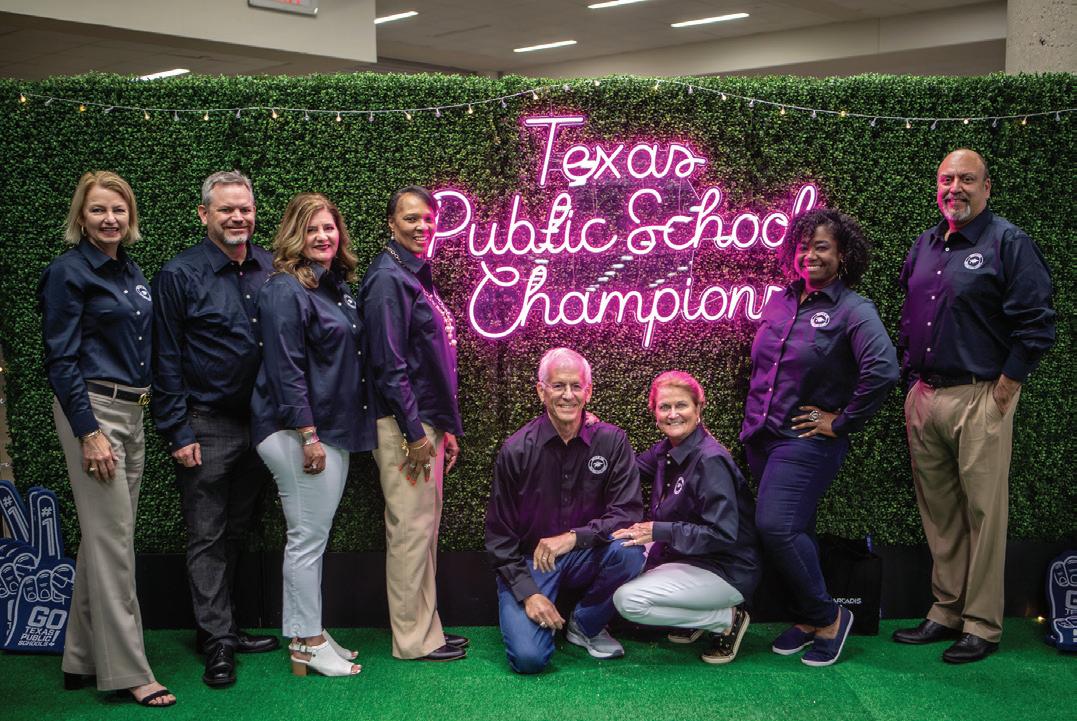
For Spencer, who has been an integral part of the txEDCON planning team for more than 40 years, the experience is always rewarding.
“When you look around and see members who are gathered together in little pods sharing information or who are engaged in their sessions and having delightful experiences, it makes you feel accomplished because you’re helping support their continuing education,” Spencer said. “Hopefully, they are walking away better prepared to serve the students in their school districts in their communities.”
Mary Ann Lopez is a staff writer for Texas
Participation in these programs helps support
and public schools in Texas.


by Beth Griesmer and Sarah James
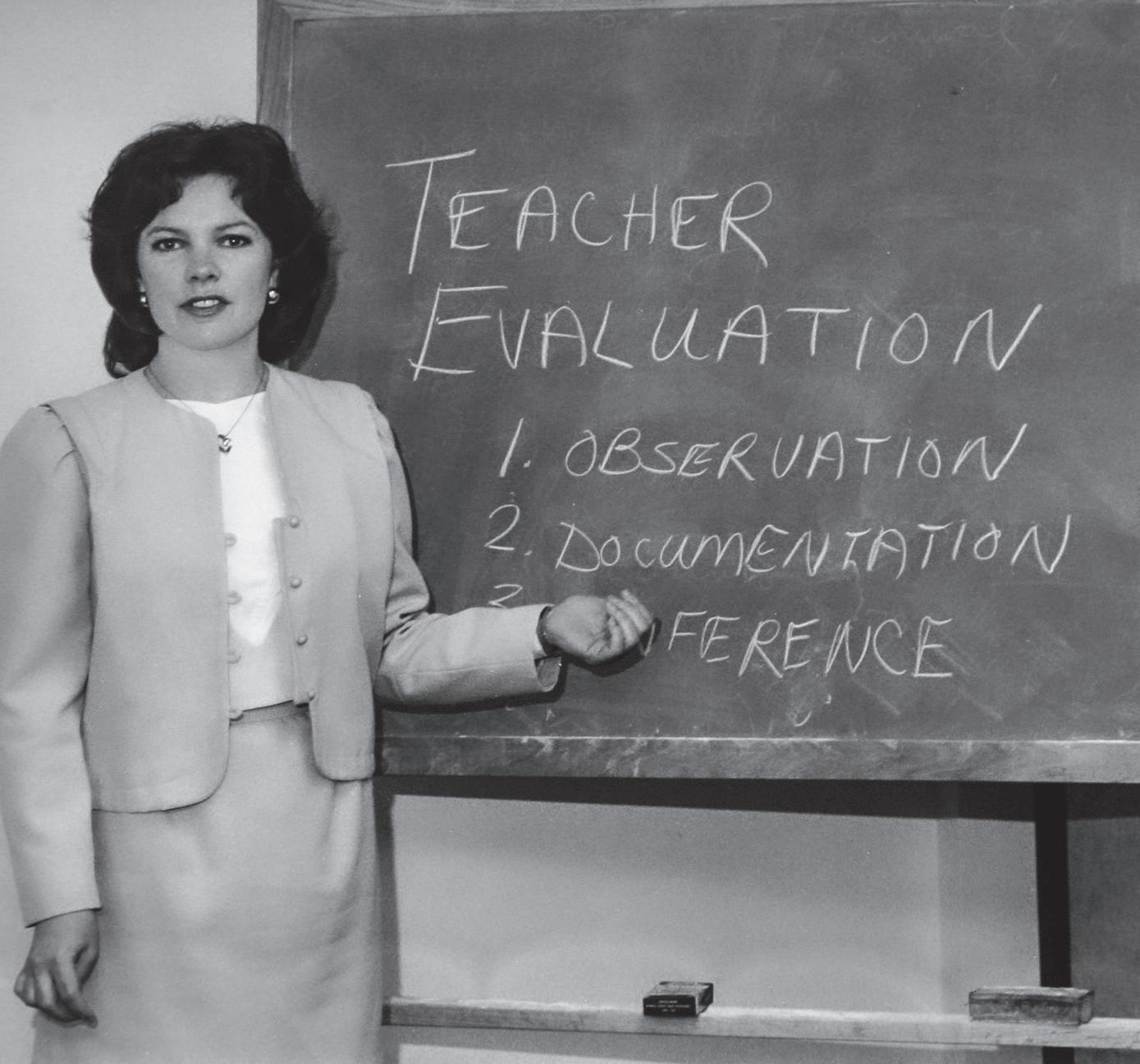
In 1984, changes mandated by House Bill 72 impacted many aspects of public school operations, including human resources. New state and federal regulations left schools scrambling to comply. TASB met this challenge with the creation of a new service.
“The idea started with the TASB president in 1984,” recalls Cindy Clegg, the inaugural director of HR Services. “His name was John Quisenberry from the Ector County School Board. He was the vice president of human resources for Sun Oil Company out in West Texas. So, he knew what human resources could be and should be.”
Forty years later, HR Services is a respected and reliable HR resource for educational entities across the state. Texas Lone Star talked to Clegg and Amy Campbell, current division director of HR Services, about the success and growth of the service throughout the years.
Q: Since the inception of HR Services, there have only been two division directors. How did each of you come to the role?
Clegg: I started at TASB in 1982. I was working for someone who did policy help on teacher union policy. My background is not education. I never was a teacher. My background is human resources from a business standpoint.
The governor had formed a select commission on educational quality to respond to A Nation at Risk [1983 report from the National Commission on Excellence in Education], and I did some testimony for that committee. I had come to the TASB executive director’s attention through that work, and he basically offered me this startup program on a trial basis for a year. He said: “We’re not going to fund another program. We will put up enough money for you and a secretary, but you have to make it self-supporting in a year.” And that’s why we started as a subscription service. It was basically me and a secretary the first year.
Campbell: I had met Cindy briefly before I came to TASB because I was in a district and had come for training. I was just thoroughly impressed with HR Services, with what HR Services did for us as school district users. They thought about what we needed before we knew what we needed. I had gone for an advanced compensation training, and I didn't even know I needed to learn that, but it was super helpful. And I met Cindy and Mary Barrett [now associate executive director for TASB Risk Management Services], who was the assistant director at the time.
I came to work at TASB in 2012 as a senior compensation consultant for one year and an assistant director of HR Services for a few years. And then as Cindy eased her way into a funfilled, relaxing retirement, we switched positions in 2016, where I became director, and she was a senior consultant on a part-time basis for a while. The beauty of that was that I had time to seek her guidance as a new director.
Cindy gave me some specific advice that I’ve remembered that I think has helped me be successful here. The first one was to not get too far away from consulting, because it’s easy in a leadership position to get farther away from the day-to-day work that goes on in your area. I’ve taken that to heart and still do consulting projects for districts, and I think it's made me a lot more aware of the needs of our members. I think it's also made me more aware of the needs of my team.
Another one was Cindy did a great job building relationships with
professional organizations that are serving our same members. So, TASA, AASPA, TASPA, and TASBO — we have partnerships with all of them. She showed me that building those relationships is important because we’re serving the same members. We can look at serving them like a puzzle where there’s something that we can provide that they can’t, and something that they can provide that we can’t. And we can work together to make it efficient and cost effective for members.
Clegg: Amy enhanced this a lot working with TEA staff, because in the rulemaking, they often don’t have the expertise they need. They need input from us about what's going to work, what’s not going to work, and understanding what’s going on. So, she served on a bunch of things with them.
And it got to the point where TEA would call us. That was kind of unheard of before. They’d call us for advice, or “can we run this by you?” And that was very helpful.
Q: What services has this program provided over the years, and how have they evolved?
Clegg: That first year we wrote manuals, and we advertised the services. That first year was just writing. We wrote a teacher career ladder manual. We wrote several books. We had a newsletter we mailed out, and we kept them up to date on legislation. It was a frantic year, but it worked.
To give you an idea of how we operated, the first pay study I ever did myself was on a 10-key calculator. I was buried in that tape calculating every single secretary’s salary. Abilene was the first, because they had a forward-looking superintendent who was very interested in the ideas of changing how people got paid and introducing market concepts.
Campbell: My first pay study was Elgin! That’s how meaningful those are to us, that we remember all these years later.
Clegg: The first personnel management manual was a big three-ring binder. And then we mailed updates — this is page three, insert page four. It is really hard to believe.
And then there were the books. Fair Labor Standards Act was the first one. When that became applicable to schools,
• Compensation studies
• Employee handbooks
• Employee surveys
• HR special project consulting
• HR Services Resource Library
• HRX newsletter
• HR reviews
• Manuals and books
• Salary surveys
• Staffing reviews
• Training
• Work-site posters
I think we had maybe a year’s notice in advance that this was going to be effective. We created The Administrator’s Guide to Fair Labor Standards Act. I was just a writer in the early days.
And then we used to have superintendent evaluations, before that split off into what is now Board Development Services, and we had a book on that, School Board’s Guide to Superintendent Evaluation. And then later, we had the leave book, The Administrator’s Guide to Leaves and Absences.
The salary survey started in 1984. That was the very first one. It was contracted out the first year, and then we took it over ourselves and just kept expanding it, adding more and more positions, stipends, benefits.
Campbell: We printed the survey results until about 2009, and then DataCentral, which is now HRDataSource, came online.
We collect all the data ourselves now through a survey system. We just got a new report. We partnered with TEA to ask a whole new set of questions two years ago. Usually in the second year we’ll put a report online where members can see it. The first year, participants just get a PDF of the results. This one was about teacher turnover and staffing choices and things like that. The commissioner wanted that data, so TEA reached out to us and said, “How can we get it?”
Clegg: That’s the ultimate compliment.
When we were so paper-driven, you would go into an HR director’s office in a school district and at least one shelf of their bookshelf was nothing but our manuals.
Campbell: When I started in a school district in 2008, the entire credenza behind my desk was all salary survey books. I mean, it was years of salary survey books. And I did use them!
One of our biggest areas of growth is staffing reviews. Cindy saw a need and contracted out because we didn’t have an expert on staff. As more and more districts needed that help and as we had
staff that were former HR leaders, we could do that in house. Back in 2013, we had roughly 10 staffing reviews. In 202324, we did 68 of them.
Q: What have been some of the biggest challenges over the last 40 years?
Clegg: The start-up years were very challenging. Regulations were coming at schools fast and furious from all sides. It went through this phase of being almost unregulated to having everything regulated. Helping districts sort through and understand all that and developing resources was just a churn. It all involved change. We were the facilitators of change and the explainers and messengers of change.
Campbell: Growth and change are the two biggest challenges that I had. Growth in that, as experienced HR staff are retiring and leaving, there is a lot of inexperienced staff coming in and they need help figuring everything out. So much has been placed on HR staff’s plates that they don’t have the time and resources to do all the stuff they may have done before. They call us to help, which is great.
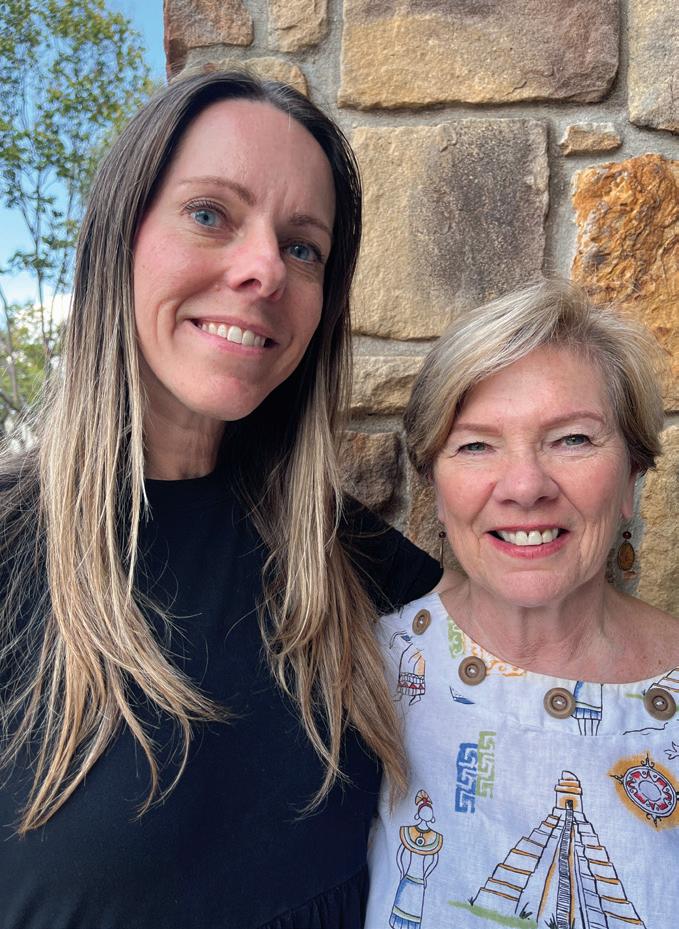
Clegg: In the earlier days, with consulting and training, our audience was the smaller districts. So, in addition to just growing as a division, we started working with larger urban and suburban districts, and that is much more timeconsuming.
Campbell: Change, for me, in the past few years has been one school-related crisis after another. HB 3 in 2019 meant required pay increases for everyone. Then the pandemic hit, and we spent all our time supporting districts through that. There have been federal law changes, and recently the current HB 3 with law enforcement requirements.
Clegg: The Family Medical Leave Act, when that came down, opened up a giant new area of consulting and support.
Campbell: That is still the number one topic we get questions on. There are over 20 different types of leave that employees are entitled to.
Q: Looking back, what are you proud of during your time as director of HR Services?
Clegg: Two things. One is the opportunity to introduce marketbased pay concept. We facilitated pay improvements for the lowest paid employees. We raised the minimum wage in so many school districts. We could see tangible results in improving pay for the hourly workers and new teachers.
Campbell: I want to add a comment to that. I can’t tell you how many districts I’ve talked to that say, “We use the TASB compensation system.” I used to say that it’s just best practice in compensation in any industry. It’s not a TASB-copyrighted system. You [Cindy] built a legacy.
Clegg: I tried to fight that. I don’t want districts to think that is something we invented.
The other thing I’m proud of is earning the respect of big districts. Historically, they would hire private firms from big corporate consulting groups. By the time I left, Houston, Dallas, and Fort Worth were calling us. We were winning the bids because we had

26
the reputation and respect. We went up on a competitive basis.
Campbell: I am proud of our support during the pandemic. Building guidance out of thin air that changed every single week. We would have webinars with thousands of people on them, and we were putting out new templates and forms and guidance. Over 180 articles about it in just a short year. It was exhausting, but we felt like no one else was doing that for districts.
I am proud of the continued growth and trying to keep up with all the needs of educational entities around the state, and that includes districts, community colleges, charter schools, and education service centers.
Clegg: That has grown tremendously since I left. We had just stuck our toe in with community colleges when I was there. I am very proud of leaving HR Services in Amy’s hands.
Q: Looking toward the future of HR Services, is there anything you wish you could have done or would still like to accomplish?
Clegg: What I really wish we could have done was help districts develop more differentiated pay for teachers based on their expertise and using teachers in more team leader and mentoring roles. That
was always the dream, and I don’t think that has ever been realized.
Campbell: I was really energized, when Cindy was director, about creative ways to pay teachers and getting away from purely experience-based pay. In 2019, House Bill 3 passed, which implemented the Teacher Incentive
We were the facilitators of change and the explainers and messengers of change.
- Cindy Clegg, the inaugural director of HR Services
Allotment. As much as we have supported districts as they have implemented that, I don’t think it fully accomplishes implementing more creative ways to pay teachers.
One of my goals moving forward
is to grow our support for strategic compensation above and beyond TIA. That program is limited to statutory regulations, and there is more that districts can do to reward teachers in more creative ways.
Clegg: The big thing that was the impetus for starting HR Services was the teacher career ladder. The concept of career pathways in teaching, career pathways in the classroom connected to students, is just as valid today as it was in 1984.
Campbell: There is a need for support and education about health benefits plans. We partnered with the Teacher Retirement System of Texas recently and did a presentation with them at Summer Leadership Institute about insurance plans and ActiveCare that focused on creative ways districts can keep it affordable.
We are good at communicating, and I think there are gaps we could fill in the future.
Beth Griesmer is a staff writer for Texas Lone Star. Sarah James is a senior communications specialist with TASB HR Services.
by TASB Legal Services
Ahead of the November election, it’s important to remember that several statutes apply to campaigning, electioneering, and political advertising. Understanding the laws and how they apply to school districts, trustees, employees, and students is essential to avoiding potential legal risks and compliance issues.
Here are some frequently asked questions to help navigate some of the most common issues that come up during any election season.
May a school district take a position in an election?
No. Texas Education Code section 11.169 prohibits a school board from using district resources to electioneer for or against any candidate, measure, or political party. Although electioneering isn’t defined in the statute, the word is generally accepted to mean working for the election of a specific party, person, or measure.
In addition, Texas Election Code section 255.003(a) prohibits a district officer or employee from knowingly spending or authorizing the spending of public funds for political advertising.
What is political advertising within this context?
Political advertising is a communication that supports or opposes a candidate or a measure that is published in a newspaper or other periodical or is broadcast on radio or TV. Political advertising also extends to communications that appear in a pamphlet, circular, flier, billboard or other sign, bumper sticker, or similar form of written communication, or on a website.
The Texas Ethics Commission interprets the use of public funds broadly to prohibit the use of district equipment, supplies, employee time, or students to create or distribute political advertising. Board members and school employees who violate this prohibition could face fines or criminal penalties. For more information, go to ethics.state.tx.us and search for: Short Guide to the Prohibition Against Using School District Resources for Political Advertising.
A communication that factually describes the purposes of a measure is not political advertising if the communication does not advocate passage or defeat of the measure. Factual information includes explanatory materials about the potential consequences of a bond or tax election, as well as specific information about
the election such as the date or polling locations.
May the district hold a press conference to provide factual information about an election or a measure on the ballot?
Yes, and board members may attend. The Texas Open Meetings Act states that the attendance of a quorum of the board at a press conference related to school business is not a meeting governed by the OMA, so long as any discussion of school business is incidental to the event. Tex. Gov’t Code § 551.001(4).
May board members use personal time and money to campaign for candidates and causes?
Yes. Public officials who are acting independently, without the use of public funds, have a free speech right to engage in political advocacy, including advocacy for their reelection. For example, a trustee may attend a community meeting or write a letter to a newspaper advocating for passage of a bond measure. When engaging in advocacy using personal time and resources, a trustee need not conceal the trustee’s position or claim to be acting as a private citizen. The key is to make sure that the time and resources spent on this advocacy are clearly personal.
May a school district host a “Meet the Candidates” event?
Yes, but that forum must be open

to all candidates, including incumbents and opponents, who all have the same opportunity to appear and speak. However, district-hosted events should not provide a platform for disseminating political advertising. To avoid any potential problems, the district should consider allowing another organization to host the candidate forum in order to avoid an inadvertent violation of the law or the appearance of impropriety. The forum could take place away from school property or on school property pursuant to the district’s facilities use policy. See TASB Policy GKD(LOCAL).
May school employees advocate for or against candidates or ballot measures?
Not on work time or using district resources, including office supplies and computer equipment. School employees who violate this prohibition could face fines or criminal penalties.
May school employees advocate for or against candidates or ballot measures on their own time?
Yes. Employees retain their First Amendment right to campaign for or
against a candidate or election measure in their non-work time, using personal resources.
What about the superintendent? Superintendents may have more difficulty separating their official speech from their private speech. See Gonzalez v. Johnson, 04-20-00516-CV, 2021 WL 4976562 (Tex. App.—San Antonio Oct. 27, 2021, no pet. h.) (considering the scope of a superintendent’s duties). Advocacy by a superintendent on a school district election matter may appear to others to be an official statement by the district and thus a use of district funds. A superintendent should either speak only about the factual purposes of an election measure or limit expression of personal viewpoints to times and places that are clearly not associated with the superintendent’s job.
May a student wear a campaign T-shirt to school?
Like employees, students maintain their First Amendment rights while at school. Nevertheless, the district has the authority to regulate student dress with reasonable, viewpoint-neutral guide-
lines. T-shirts with political messages should be permitted on the same basis as T-shirts with other messages. As with any dress code regulation, the guidance should be specific enough to give a clear understanding of what is expected, and the guidance should be provided before any attempt is made to enforce the dress code.
If you have questions about these issues, consult your school district’s attorney or call TASB Legal Services at 800-580-5345
This article is provided for educational purposes and contains information to facilitate a general understanding of the law. References to judicial or other official proceedings are intended to be a fair and impartial account of public records, which may contain allegations that are not true. This article is not an exhaustive treatment of the law, nor is it intended to substitute for the advice of an attorney. Consult your own attorney to apply these legal principles to specific fact situations.

by Dax González
The TASB Delegate Assembly is just around the corner, and that means school boards across the state will have the opportunity to have a voice in the direction of the Association and its advocacy work in the upcoming legislative session.
For decades, trustees have amplified their voices by working together on key priorities for Texas public education at Delegate Assembly — TASB’s official annual membership meeting, where every Active Member has a vote in the direction of the organization. Delegate Assembly will be held Sept. 28 during txEDCON24 in San Antonio.
Current Mesquite ISD Board President Robert Seward recalls his first Delegate Assembly back in 1993 as a new trustee.
“The Delegate Assembly left a lasting impression, showcasing how educational leaders could come together to make impactful decisions with grace, civility, and professionalism,” Seward said. “It got me all fired up about the whole participatory process and TASB’s advocacy work.”
Seward said his Delegate Assembly activities over the years led to greater participation in public education activities and TASB, culminating in his position as TASB president in 2008-09.
“As the years rolled by, I found myself getting more and more involved. The legislative and advocacy side of things really grabbed me, and before I knew it, I was knee-deep in TASB’s grassroots efforts,” Seward said.
Ingleside ISD Trustee Teresa Flores, who was TASB president in 2017-18, said the opportunity to attend Delegate Assembly and have a voice in legislative advocacy is another great benefit of the
annual convention, hosted by TASB and the Texas Association of School Administrators.
“For those truly wanting to make a difference, we must educate our state senators and representatives on the impacts of their decisions and advocate for what is best for our students,” Flores said. “Delegate Assembly allows our voices to be heard and directs TASB in sharing our stance on laws under consideration and the impacts they may have.”
TASB is thankful to those boards that have already selected a delegate this year, and we encourage those that have not to please consider doing so. For local boards, the process to name a delegate begins at
a regular board meeting with an agenda item to appoint a delegate and alternate to attend Delegate Assembly. Then, the board should discuss who would be the best fit for these roles. Boards can even send a delegate to Delegate Assembly and have them sign up onsite if they missed the opportunity to appoint one during a regular board meeting. Learn more about the selection process at delegate.tasb.org. Who the board selects as its representatives is important. Boards may want to choose individuals who participated in TASB’s regional Grassroots Meetings or who sit on the TASB Legislative Advisory Council. In the end, however, TASB Immediate Past President Debbie Gillespie — also a current trustee of the Region 10 Education Service Center Board and a former Frisco ISD trustee — believes many trustees have what it takes to be a delegate.
“All trustees have the key quality — a passion for our public schools,” said Gillespie. “From there, you want to consider who has the knowledge about the challenges and concerns in your schools and community and would be best equipped to speak and act with those priorities in mind.”
The Delegate Handbook and Nominations Committee Report were posted in early September. Registered delegates and

alternates will receive an email with a link to the resources, which detail the action items under consideration.
“The most important thing is to prepare by reviewing the materials and discussing the action items with your board,” said Tommy Bishop, current Midland ISD board president.
On the day of Delegate Assembly, delegates and alternates will first attend their regional caucus meetings. This is a working lunch where colleagues from the same region get together and discuss the action items, including any concerns and proposed amendments. It’s also a chance to ask questions of TASB directors, staff, and other trustees.
“I really enjoy the caucuses,” said Mia Price, a Denton ISD trustee. “That’s the important part to me. I value networking with the other districts in my area. That’s where you get to discuss your priorities and get a feel for how legislation impacts not only your own district, but also your neighbors. And lunch is provided!”
At 1:45 p.m., all delegates and alternates head to the assembly hall.
“The floor is divided by region, so
you’re sitting with the people you just got to know in the caucus meeting, as well your TASB directors,” said Bishop.
Delegate Assembly kicks off at 2 p.m. Only one representative from each school board is allowed on the floor. However, guest seating is provided at the back of the room so delegates and alternates can trade off time on the floor. Bishop said being a delegate can sound intimidating, but it is really a fun and fulfilling role.
“This is when it really gets interesting,” said Bishop. “You will get to hear speeches from candidates for director positions and vote on the directors and officers. You will hear reports on TASB’s work for members over the last year. Then, we tackle the Advocacy Agenda. This works kind of like the Legislature. There will be questions, discussion, and motions. It’s truly a fascinating process. As a representative for your board and all public schools, you feel heard. It can be very educational, even for the most seasoned board member.”
The work done at Delegate Assem-
bly will have a direct impact on TASB’s advocacy efforts during the 89th legislative session, which begins Jan. 14, 2025. TASB needs to hear from local boards so that the voice we share with legislators is your voice.
“TASB is an association of many voices, and each one is an important piece of our work,” added Gillespie. “TASB depends on all school boards being actively involved in decisions on how the Association will tackle the advocacy issues facing Texas public schools.”
Again, the date for Delegate Assembly is Sept. 28, in conjunction with txEDCON24. As Active Members, each local school board and regional education service center board has the exclusive right to appoint a delegate who will speak and vote for their board. For more on Delegate Assembly, visit tasb.org/delegate
Looking forward to seeing you at Delegate Assembly!
Dax González is division director of TASB Governmental Relations.

by Denise Carter
Texas public school districts must regularly update special education operating procedures online to reflect current federal and state requirements and align with actual district practices.
Do your district’s special education operating procedures meet this Texas Education Agency mandate? Following are guidelines to consider in maintaining compliance and properly updating procedures on TEA’s Texas Legal Framework for the Child-Centered Special Education Process (Legal Framework) website.
The school board’s role
Texas public school boards approve a multitude of policies that incorporate legal and local requirements to conduct school business effectively and efficiently. These policies provide the what and why for district staff to follow.
Special education operating procedures indicate how and when the district will implement policy requirements and delineate who will do so. Adopted board policy restates laws and regulations. With a focus on day-to-day functions of the program, operating procedures indicate how a district will carry out board-adopted policies and drive continuous improvement. Each district determines whether local operating procedures require board approval.
Districts that apply for and receive federal special education funds must establish and follow procedures to ensure program compliance. This ongoing IDEA-B expectation received significant attention in October 2020, when TEA mandated, for the first time, that districts upload designated procedures for agency review.
Although each district should create written procedures for every area included on the Legal Framework website, TEA currently only requires districts to upload Child Find, Evaluation, and FAPE (ARD Committee) frameworks.
By Aug. 31 of each year, each district must review its special education operating procedures currently uploaded in the Legal Framework system to ensure the content reflects relevant legislative changes, updates to Texas education and administrative codes, and current district practices.
The Legal Framework identifies 10 frameworks for special education operating procedures. Each framework includes specific areas in which the district must establish written procedures. TEA guidance indicates that each procedure include all of the following:
• An explanation of how the district will meet federal and state requirements in the specific area
• Relevant timelines
• Staff positions accountable for executing required actions
• A list of ways in which the district can prove implementation
To meet these requirements, a district may choose to create its own special education operating procedures from scratch, use templates in each area provided by TEA, or purchase a commercial product such as operating procedures available through a membership to TASB Student Solutions. The chosen method must incorporate all required components and use naming conventions established by TEA in August 2022.
Before Aug. 31 of each year, district special education administrators should review the special education operating procedures currently uploaded in the Legal Framework.
During the review:
• Update all areas impacted by legislative, commissioner’s rules, or State Board of Education changes.
The chosen method must incorporate all required components and use naming conventions established by TEA in August 2022.
• Ensure continued alignment with current practices. Ask if your written procedures match what your staff actually does.
• Communicate with district and campus level staff responsible for implementing the procedures to ensure everyone understands expectations. Ask what works or does not work to ascertain whether procedures need changes or staff require additional training.
Following the review:
• Train district and campus administrators in the special education processes written in the procedures.
• Train all district staff involved in the education of, or interaction with, students receiving special education services in the special education processes written in the procedures.
• In all training sessions, highlight updates and significant changes from previous procedures.
Do your district’s special education operating procedures meet expectations? If you engage in these practices, they likely do. Clear procedures will help your district meet an important first step of a compliant special education program, provide clear guidance for staff, and positively impact student performance.
Contact TASB Student Solutions for more information about special education operating procedures as well as procedures for other special populations programs. You can view information on our membership website (tasb.org/studentsolutions), call us at 888-247-4829, or email studentsolutions@tasb.org for more information.
Denise Carter is manager of TASB Student Solutions.
As the competition for outstanding, communityfocused leaders grows, our skilled and experienced team is ready to support your district’s search for a dedicated superintendent.
From start to finish, our search process is fully customizable, and includes:
Strategic planning
Guidance during the application process
Supportive advertising and recruitment
Streamlined interview, background check, and reference process
Integrated community outreach
Collaborative transition process
by Cornelius Hambrick
Editor’s Note: The District Voices column features articles written by local school district board members around Texas. We want to hear more about what is going on in local districts and invite your submissions. Send submissions to managing editor Laura Tolley at laura.tolley@tasb.org.
My district, LaPoynor ISD, is a small district achieving remarkable milestones. With fewer than 500 students, our close-knit community in the heart of East Texas is dedicated to providing outstanding educational opportunities. A shining example of this commitment is our Career and Technical Education program led by Donna Jeffus.
When Jeffus took on the role of CTE director, our program was limited to two complete courses of study — both in agriculture. Recognizing the need for expansion and the potential benefits to our students, Jeffus embarked on a mission to revolutionize our CTE offerings. Her goal was clear: to align programs with opportunities for students to complete their studies and earn valuable certifications.
This transformation required a unified effort. The first step was ensuring teachers had the correct certifications and high motivation to support the programs. This step ensured that everyone was fully aligned with our new vision, resulting in a team of educators dedicated to providing the best for our students.
Other significant steps were adjusting GPA weighting to include CTE courses and reducing our social studies requirement from four to three courses. This allowed students the flexibility to explore
multiple CTE programs or sample different courses without being confined to a single path. Additionally, all seventh and eighth grade students were enrolled in high school CTE courses, giving them early exposure to course offerings and increasing district funding.
Under Jeffus’ leadership, LaPoynor High School’s CTE program has expanded
significantly. We added a culinary program, a complete plant science program in agriculture, and strongly encouraged students to take floral design as their fine art. The most impactful addition has been the health science program, opening doors to high-demand career opportunities.
Our business students were integrated into the audiovisual program, which is now shifting toward marketing career paths. We also introduced an education and training program. Although it’s not the most popular choice, it addresses a critical need of growing our own future educators amidst a nationwide teacher shortage.
These strategic changes have had a profound impact on our district’s accountability and funding. Our students are now better equipped with the skills and certifications they need to succeed in various career paths. The community has rallied behind these initiatives, recognizing the
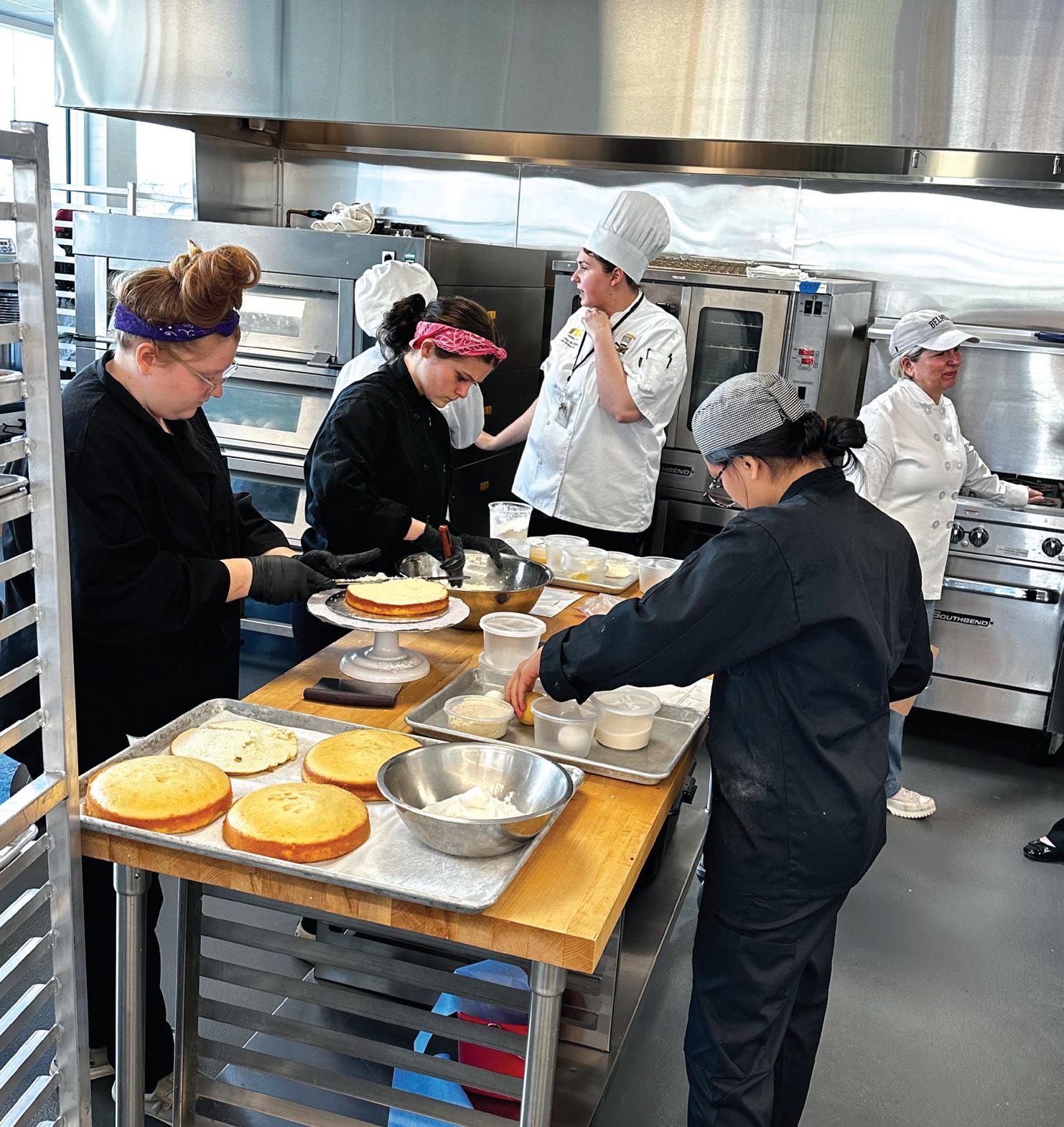
long-term benefits for our students and the broader community.
In a small town like ours, every effort counts, and every success is magnified. Thanks to the dedication and vision of Jeffus and the unwavering support of our educators, LaPoynor ISD’s CTE program is a stellar example of how significant achievements can emerge from small communities. Our students are not just learning, they are preparing to lead and excel in their future careers. And that is something we can all take pride in.
Cornelius Hambrick is a member of the LaPoynor ISD Board of Trustees. LaPoynor ISD is located in East Texas and serves 490 students. He also is an LTASB Class of 2024 Master Trustee.
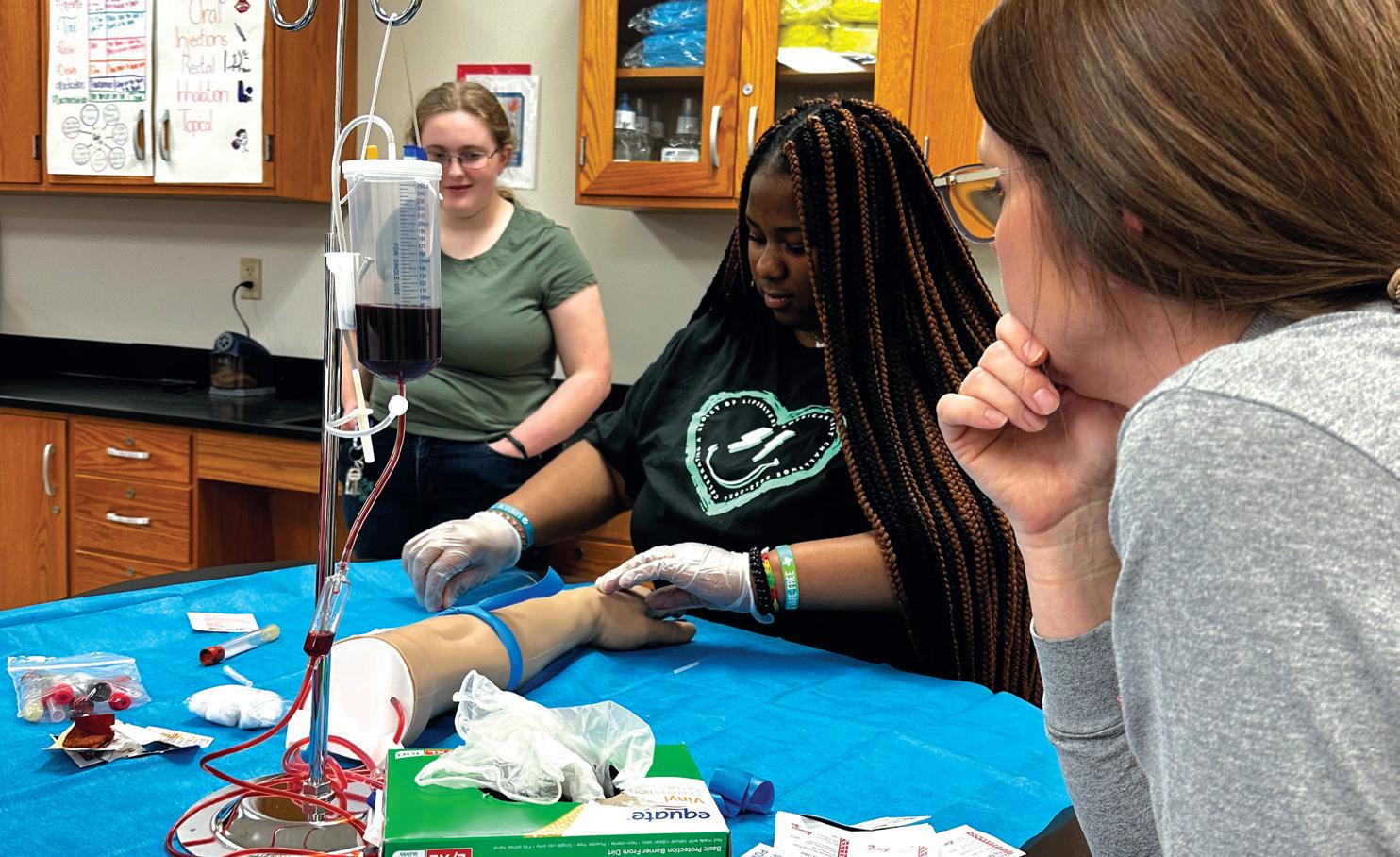
TASB Benefits Cooperative’s Awarded Consultant, Gallagher Benefits Services, brings a wealth of experience in navigating health plans for Texas school districts. Allow our team to help you, your district, and your staff with the complex process of evaluating and choosing a healthcare plan. Gallagher will work with you to:
• Provide comprehensive forensic analysis of your data
• Submit RFPs to carriers/vendors on your behalf

by Mary Ann Lopez

Editor’s note: Leadership TASB is a unique board development program designed to take experienced board members to a new level of service and leadership by introducing them to a variety of issues, people, activities, and locations.
TASB is pleased to announce the 34 school board members selected to participate in the Leadership TASB Class of 2025. A committee made up of LTASB alumni recommended the class members and presented the selections to the Member Services Committee of the TASB Board of Directors for approval during its July meeting.
“We are excited to welcome the members of the Class of 2025 and want to congratulate them on this achievement,” said Dan Troxell, TASB executive director. “LTASB has made a significant impact in the lives of more than 1,000 school board trustees over its more than 30-year history. We look forward to watching this new group as they begin the challenging work that allows them to grow and expand their board leadership skills in the service of public school students.”
LTASB was developed and designed by school board members for school board members in 1993 as part of the Association’s ongoing commitment to provide visionary leadership to Texas school boards. The program arose from a request from the TASB Board to increase trustee involvement and provide advanced educational training and leadership opportunities to members. Since then, LTASB has developed into the premier school board training program in the state, with more than
1,000 Master Trustees.
Each year, a cohort of experienced board members is selected based on demonstrated leadership in the trustees’ local school district and communities. The trustees represent districts from across the state that vary in size and the student populations they serve.
The Class of 2025 will gather for the first time at txEDCON24, which will be Sept. 27-29 in San Antonio. The yearlong program includes educational visits to districts and communities across Texas and concludes in June 2025 at Summer Leadership Institute.
LTASB was developed and designed by school board members for school board members in 1993 as part of the Association’s ongoing commitment to provide visionary leadership.
TASB Board President Armando Rodriguez, who is Canutillo ISD’s board president, graduated with his Master Trustee title as a member of the Class of 2012.
“Every board member who participates in LTASB knows going in that there will be a lot of hard work required, but what they may not anticipate is just how life changing the experience will be,” Rodriguez said. “Even the most experienced trustees walk away from LTASB having gained a greater understanding of board governance,
A
leadership, and advocacy, which in turn has a direct impact on their districts, their students, and school communities.”
Timed with the launch of the new class is a refresh for the LTASB brand. The new brand design will begin appearing on materials and displays as the new cohort kicks off this year (see new brand story on page 31).
The members of the LTASB Class of 2025 are:
• Jennifer Alfaro, Rio Hondo ISD
• Robert Anderson, West Rusk County CISD
• Sara Burleson, Midland ISD
• Emilio Carrasco, East Central ISD
• Dawn Champagne, Katy ISD
• Ginger Collier, Lake Dallas ISD
• Carmen Correa, Spring ISD
• Sylvia De La Garza, Plainview ISD
• Conception (Connie) Esparza, Aldine ISD
• Amber Feller Landrum, Round Rock ISD
• Melody Fowler, Arlington ISD
• Rick Garcia, Fort Bend ISD
• Melissa Gonzales, GregoryPortland ISD
• Courtney Gore, Granbury ISD
• Elvia Guadian, Del Valle ISD
• Jean Hichen-Williams, Henderson ISD
• Russ Johnson, Lorena ISD
• Lisa Kallies, Crosby ISD
• Amanda Kington, Pecos-BarstowToyah ISD
• Jeff Larson, Clear Creek ISD
• Lloyd Lietz, Three Way ISD
• Lisa Lobb, Irving ISD
• Kimberly McAdams, College Station ISD
• Francisco (Harvey) Oaxaca, McKinney ISD
• Marco R. Ortiz, Taylor ISD
• Bill Parker, Allen ISD
• Ranna Raval, Coppell ISD
• Lauren Rothe, Lumberton ISD
• Janet Spurlock, Alief ISD
• Mary L. Thomas, Manor ISD
• Mary Belle Unger-Robles, Southside ISD
• Michael Valdez, Edgewood ISDBexar County
• Viola Z. Vela, Lyford CISD
• Alex (Alejandro) Ybarra, Channelview ISD
Mary Ann Lopez is a staff writer for Texas Lone Star
by Mary Ann Lopez
As Leadership TASB prepares to welcome its newest class of trustees during txEDCON24, the program is unveiling a freshly updated brand logo design.
The new LTASB branding honors the program’s history and the more than 1,000 Master Trustees it has served, while it continues to focus on making a positive impact in trustees’ lives for years to come.
“Over the years, LTASB has proven to be such a vital program for trustees, and it’s really critical that it stays relevant as it continues to provide future cohorts with immersive learning opportunities,” said Dan Troxell, TASB executive director. “We know how important LTASB is because we hear from alumni who tell us, ‘LTASB changed my life.’ We want to ensure the program continues to be an outstanding learning experience for trustees.”
LTASB’s mission has remained steadfast over the program’s more than 30-year history and has ensured that trustees who participate in the highly selective program gain a greater understanding of leadership, board governance, and advocacy. The new LTASB brand design reflects this mission and highlights the critical role Master Trustees play in their communities as they seek to support families and students in their quest for academic achievement.
“We’re excited to unveil this new brand design as the Class of 2025 begins its LTASB journey,” said Robert Long III, division director of Board Development Services and LTASB program manager. “We know that the program has had an incredible history and has supported so many trustees, and we see this as a great time to position LTASB for decades to come.”
The design update coincides with the TASB 75th anniversary celebration happening in 2024. The Association not only modernized its logo and branding but also sought to refresh each TASB department’s branding. With its update, the LTASB design now has a direct connection to the Association.

The LTASB brand story
• The crest symbolizes the Master Trustees who have shown their strength as advocates for Texas public schools and students.
• The LTASB green represents the growth that each trustee experiences as they collaborate with other members of their cohort.
• The light blue represents TASB’s collective optimism about the power of public education, which is as vast as the Texas sky.
• The vibrant yellow symbolizes the bonds and friendships that are forged during the yearlong program. This fellowship binds every cohort creating lifelong connections.
• The center star is inspired by the 5.5 million Texas schoolchildren across our diverse state. Students are always at the center of the TASB mission to promote educational excellence, and the navy blue is a tribute to TASB’s members, whose good governance is the cornerstone for thriving school communities.
TASB members can expect to see the new brand logo on materials and displays during txEDCON24.
Get more information about LTASB, leadershiptasb@tasb.org.
Mary Ann Lopez is a staff writer for Texas Lone Star
Let Congress know that Texans are serious about supporting our public schools and communities Join us at the Texas Federal Advocacy Conference, an exclusive advocacy event for Texas school leaders.
Texas Federal Advocacy Conference Jan. 27-28, 2025 • Washington, D.C.
Registration opens Sept. 24.

Five school boards from across Texas have been selected as Honor School Boards as part of the 2024 Texas Association of School Administrators’ School Board Awards. Each year, the program recognizes outstanding Texas school boards for commitment and service that has had a positive impact on Texas public school students.
The five Honor Boards were selected by a committee of Texas school superintendents. The selection committee’s decisions were based on criteria that include support for educational performance, support for educational improvement projects, commitment to a code of ethics, and maintenance of harmonious and supportive relationships among board members.
Since 1971, the TASA school board awards program has honored Texas school district boards that have demonstrated dedication to student achievement and that put students first.
The five school boards selected as 2024 Texas Honor School Boards are:
9
The School Board Awards Committee
The Corsicana ISD board celebrates being named TASA’s Outstanding School Board in 2023 at txEDCON23.
was impressed that five out of seven trustees on the Burkburnett ISD board are Leadership TASB Master Trustees, an indication of their commitment to governance. The committee also noted the board’s high level of engagement with and strong connection to their community.
With Burkburnett’s proximity to Sheppard Air Force Base in North Texas, the district serves many military-connected students and their families, and all six district campuses have been recognized with the Purple Star designation for the support and commitment shown to those students.
In nominating his board for the honor, Superintendent Brad Owen wrote: “The BISD school board is progressive and courageous in their view and belief of true student learning. The board challenges the district to find customizable ways to educate ALL students and to assess that learning through various avenues that reflect a true measure of student knowledge and abilities.”
The School Board Awards Committee was impressed by the Corpus Christi ISD
board’s legislative advocacy on behalf of the district’s students and its annual Keeping Every Youth in School walk. Every September, the board launches the walk with community volunteers, elected officials, clergy, and district employees who walk door-to-door to meet the families of students who did not enroll in the district or any other by the start of the school year. It allows the district to reconnect with families and dropouts to promote a stay-in-school attitude and show support to help them overcome their barriers.
In nominating his board for the honor, Superintendent Roland Hernandez wrote: “Our board is steadfast in its focus on student outcomes. They are intentional in their actions and truly listen to staff, families, and the community to do what is right for our students, district, and our city. We are grateful that our board’s diversity helps us ensure our work includes the perspectives of all sectors of our community. In addition to ethnic diversity, our trustees’ range of professional, educational, and life experience ensures our policies reflect our vibrant, growing South Texas community.”

by
The School Board Awards Committee was impressed by the early childhood initiatives instituted by the Donna ISD board and the district’s focus and sense of urgency regarding educational improvement. The committee noted how fiscally responsible the board is and how well board members maximize opportunities despite limited resources. The district is located in the Rio Grande Valley.
In nominating her board for the honor, Superintendent Angela Dominguez wrote: “Donna ISD board members see their role as an act of service and advocacy. We are incredibly fortunate to have seven trustees who are relentless in their efforts to do what is best for students. There is no doubt that our board members believe in the mission of Donna ISD and they are fully invested in our number-one outcome of graduating all students per their expected graduation date ready for college, career, or the military. They routinely engage with students, staff, and community in positive ways.”
The School Board Awards Committee was impressed by the customer service focus of the Grand Prairie ISD board and the diversified programming offered to students in the North Texas district. The committee also noted the board’s focuses on innovation, systems, and safety.
In nominating the board for the honor, former Superintendent Linda Ellis wrote: “Regardless of the challenge — a global pandemic, a once-in-a-lifetime winter storm, deep concerns about school safety, or the recent need to consolidate schools — these leaders have never forgotten that their priority is doing what is best for students, families, and community. Despite varied backgrounds, constituent groups, and interests, they understand their highest value is having a united ‘team of eight.’”
The School Board Awards Committee was impressed by the Klein ISD board’s focus on student achievement as well as how trustees work through an open forum process that helps keep the business of the school district moving forward. The committee also noted the board’s community engagement and involvement in
public relations for the district, which is north of Houston.
In nominating her board for the honor, Superintendent Jenny McGown wrote: “By establishing policies and enacting a shared vision dedicated to knowing and serving every student by name, strength, and need, our Klein ISD Board empowers and encourages us to ensure every student — regardless of the initial or inherited circumstances of that student’s birth — discovers a mighty purpose for life that ultimately strengthens our Klein community well beyond their time spent with us.”
This is the first time in the award program’s history that the Donna ISD school board has been selected as a statewide honor board. Burkburnett ISD’s board was an Honor Board in 2010, Corpus Christi ISD’s board was the 1982 Outstanding School Board, Grand Prairie ISD’s board was an Honor Board in 1976, and Klein ISD’s board was an Honor Board in 2012 and 1996.
The five boards are now finalists for the program’s highest honor: the 2024 Outstanding School Board. They will be
interviewed Sept. 27 at txEDCON24 in San Antonio, where one board will be named Outstanding School Board the same day. The other Honor Boards, as well as the regional winners, will also be recognized at that time.
The nine boards to be recognized as 2024 Regional Honor Boards are:
• Ricardo ISD Board of Trustees — Region 2 (small district category)
• Nederland ISD Board of Trustees — Region 5
• Bellville ISD Board of Trustees — Region 6
• Marshall ISD Board of Trustees — Region 7
• Como-Pickton CISD Board of Trustees — Region 8
• Mansfield ISD Board of Trustees — Region 11
• Liberty Hill ISD Board of Trustees — Region 13
• Wellington ISD Board of Trustees — Region 16
• Marion ISD Board of Trustees — Region 20

by Sylvia Wood
Five Texas public school superintendents have been named as state finalists for TASB’s annual Superintendent of the Year award.
This year’s award coincides with the 40th anniversary of the award program, which was established in 1984 to recognize exemplary school leaders.
“The Superintendent of the Year program was specifically designed to showcase the outstanding work happening in school districts from across the state to highlight the power of excellent and transformative leadership in public education,” said TASB Executive Director Dan Troxell. “We’re especially excited to celebrate this year’s state finalists in conjunction with this milestone anniversary for the program. I fully expect the Superintendent of the Year Award will continue to be the premier honor for district leaders for decades to come.”
The five finalists were selected by a TASB committee of school board members who interviewed 18 regional nominees put forward by education service centers across the state. The candidates were evaluated based on their work in improving student outcomes, developing a strong team-of-eight relationship, fiscal management, advocacy, and their ongoing commitment to education innovation, improvement, and leadership.
Nederland ISD Trustee Nicholas Phillips, who chaired the TASB selection committee, thanked all the superintendents who participated in the selection process, which included interviews on Aug. 23-24 in Austin.
“On behalf of the committee, we want to thank all of the school boards that took the time to nominate their superintendents,” Phillips said. “We’re also grateful to the ESCs that review all of the nominations and put forward such outstanding regional finalists for consideration. Coming up with five state finalists is extremely difficult from among such a talented pool of public school leaders, and the selection committee truly enjoyed hearing about the great work happening in districts across the state.”
The five state finalists, representing districts that range in size from 900 to more than 35,000 students, are:
Gonzalo Salazar, Los Fresnos CISD, Region 1
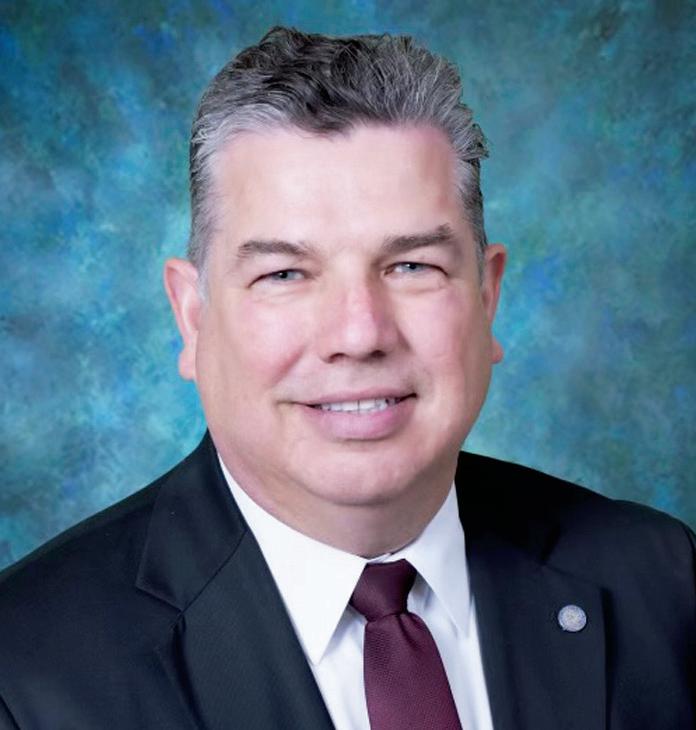
Salazar has served as the superintendent of Los Fresnos CISD since 2006. The district encompasses 487 square miles and serves more than 10,350 students in Cameron County, located just north of the Mexico border. In selecting Salazar as a finalist, the committee noted his commitment to public education, excellent student outcomes, and strong fiscal management.
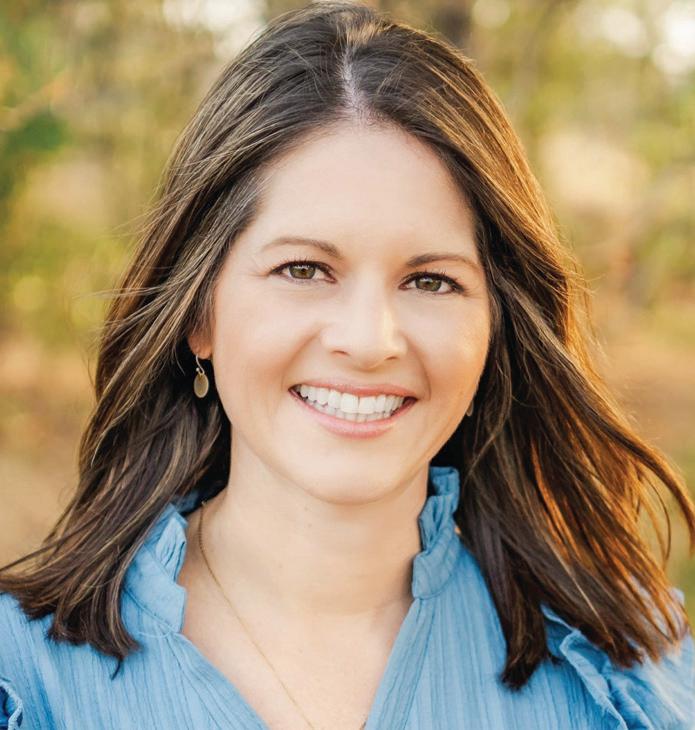
Poenitzsch has served as the superintendent of Bellville ISD since 2019. The district spans 385 square miles and enrolls about 2,300 students in Austin County between Brenham and Sealy west of the greater Houston metropolitan area. The committee cited Poenitzsch’s leadership, high expectations for students, and her community involvement in naming her a state finalist.
Brad Owen, Burkburnett ISD, Region 9

Owen has served as the superintendent of Burkburnett ISD since November 2020, where he has spent 27 years of his public education career. Burkburnett ISD, which enrolls about 3,252 students, is north of Sheppard Air Force Base in northeastern Wichita County. In naming him as a state finalist, the committee said it was impressed with his dynamic leadership style and his work to make sure all students benefit from a transformative public education.
Kimberley Cantu, Mansfield ISD, Region 11
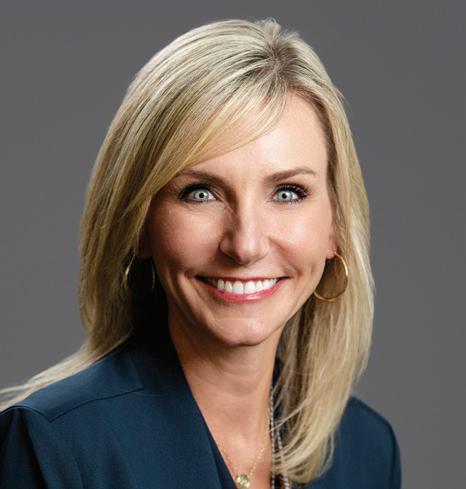
Cantu has been the superintendent of Mansfield ISD since January 2020 and is in her 33nd year of service in public education, including 26 at Mansfield. Located in the Dallas-Fort Worth Metroplex, the district spans 94 square miles with 49 schools serving more than 35,000 students. The committee noted Cantu’s engagement with staff, students, and the community, and her collaborative approach to meeting the learning needs of all students.
Darryl Henson, Marlin ISD, Region 12
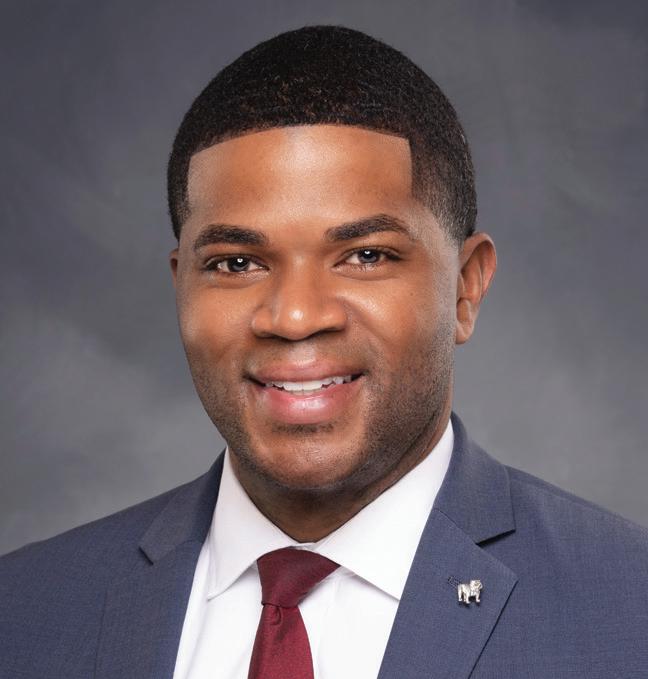
Henson has served as the superintendent of Marlin ISD since 2020 and has been an educator for 18 years, including roles in Cedar Hill and Houston ISDs. The committee cited Henson’s commitment to improving student outcomes in a district that has been transitioning back to a locally elected board of trustees after an intervention from the Texas Education Agency. Located southeast of Waco, Marlin ISD enrolls more than 900 students in Falls County.
These superintendents advanced to the next stage of the SOTY competition, which takes place at txEDCON24 in San Antonio. The winner will be announced Saturday, Sept. 28, and will receive an award underwritten by program sponsor Balfour.

“Education is the movement from darkness to light.”
—Allan Bloom

The Texas School Public Relations Association recently announced Walter Jackson as the recipient of its 2024 Key Communicator Award because of his significant contributions to the field of public school communications.
Jackson champions initiatives and policies promoting equitable access to education, student success, and the professional growth of educators, TSPRA said in a new release. His unwavering commitment to these causes has significantly impacted La Porte ISD and the broader education community.

His roles as a board member of the University Interscholastic League Legislative Council, the Texas Association of School Administrators’ executive committee, and the governing board of AASA, The School Superintendents Association, demonstrate his dedication to fostering communication and advocacy for public education, the TSPRA release said. Through these roles, he has been a powerful voice for La Porte ISD and public schools across the state.
Jackson's extraordinary communication acumen and leadership also extended La Porte ISD's reach beyond its borders by forming a transformative partnership with the University of Houston-Clear Lake, resulting in Project Launch. This pioneering initiative allows fifth and sixth grade students to enroll in STEM-based college courses of their choice.
His exceptional communication skills were pivotal in the successful passage of a $235 million bond at a time when the national inflation was at its peak. Despite economic challenges, he adeptly navigated budgetary concerns and garnered support from diverse stakeholders, achieving historic approval margins.
TASB’s Executive Search Services is currently accepting applications for the positions listed below:
Lipan ISD: Superintendent Deadline: Oct. 6
Scurry-Rosser ISD: Superintendent Deadline: Oct. 7
For information about vacancies or services provided by TASB’s Executive Search Services, call 800-580-8272, email executive.search@tasb.org
TSPRA will present Jackson with the Key Communicator Award during txEDCON24 in late September. We want to recognize school board members’ extraordinary work in TLS!

This year’s recipient of the James B. Crow Innovation in Governance Award is Bobby Blount, board president at Northside ISD in Bexar County. The award honors its namesake, who retired as executive director of TASB in August 2021 after 40 years of service to the Association. Blount was honored at Summer Leadership Institute in June. The award includes a $10,000 contribution to the district of the recipient’s choice, and Blount chose Northside ISD. There was a check presentation with Northside ISD school leaders in late August. In the photo, Blount is fourth from the left, and to his right is TASB President Armando Rodriguez.


If you have received any awards or honors, please send your news and photos to tls@tasb.org.
by Tiffany Dunne-Oldfield
Shortly after I started working at TASB, my mother, a retired nurse and former public school library volunteer, told me she heard there was pornography in school libraries. “Is this true?” she asked.
It was back in 2021, when divisive debates about library books were at their height. My mother never saw any inappropriate materials in the books she placed and pulled off shelves or recommended to students. But that was years ago, and she wanted my take on what she was hearing. Of course, I was able to reassure her with the facts.
The conversation I had with my mother is a good reminder about the importance of sharing the successes we each see in public education today, especially with family and community members who are not closely involved with the day-to-day happenings in their local schools. Doing this, and doing it consistently, is critical as we prepare for the 89th Texas Legislature, which begins in a few short months.
As a communications professional, I’ve spent my career trying to bridge the gap between perception and reality. However, doing so is becoming increasingly difficult in part because of the speed at which misinformation, disinformation, and rumors can be spread, especially online.
Another part of the problem is the echo chamber we’re all experiencing right now on social media, where algorithms ensure we only encounter the people — or the opinions — that reflect or reinforce our own views on topics.
It’s hard to debunk falsehoods or put forward informed viewpoints when our
Facebook and X feeds aren’t giving us the full story on what’s being said or who’s saying it.
This poses a lot of challenges for public education because much of the debate on important issues, ranging from library books to funding to school vouchers, is taking place in these echo chambers.
The story we need to be telling
While there are no easy solutions for school districts or public education advocates who know the reality of what is happening in school districts, we can all agree that we must stay diligent in getting our message out. There’s no shortage of efforts to promote our public schools through storytelling and advocating. In fact, many districts are now devoting more resources to marketing and advertising as they seek to showcase their successes.
There’s no shortage of efforts to promote our public schools through storytelling and advocating.
Of course, there’s a lot to be proud of in Texas public schools, which are educating about 5.5 million students and preparing them for life beyond high school. In fact, we have our public schools to thank for the economic powerhouse in the Lone Star State, which continues to draw nearly 400,000 new residents into its borders every year as people relocate here for the quality of life — and the quality of our public schools. Texas boasts the eighth-
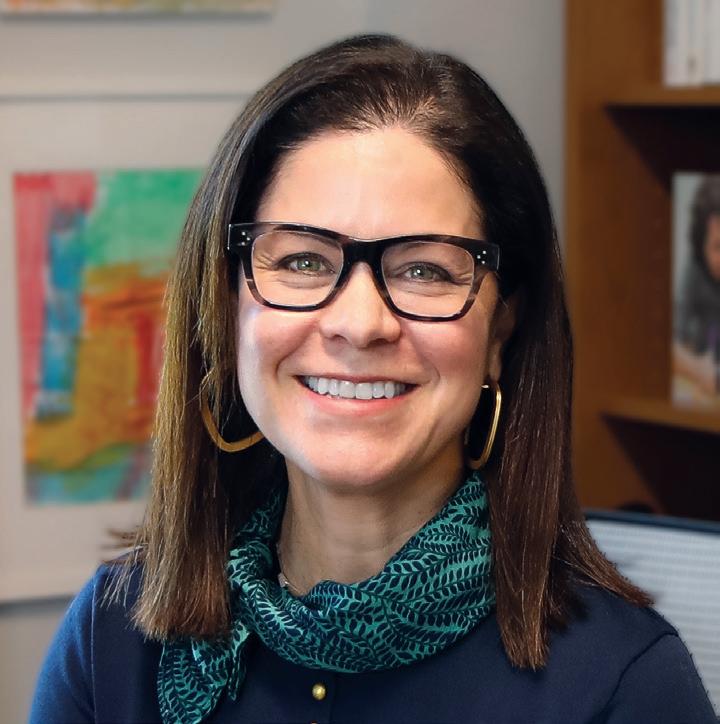
largest economy in the world. This accomplishment is a testament to our exceptional public school programs and excellent public school educators, who are graduating students who are well prepared for college, careers, and military service.
That’s the story we need to be talking about, not just with friends and neighbors in our online echo chambers but in places where we might actually encounter people who have different opinions and perspectives.
That’s hard work. But as we prepare for the upcoming legislative session, it’s important that we stay united and committed to the message that a strong public school system is essential for a thriving economy and a vibrant community. The future of Texas is riding on that.
My mom is now a resident in an independent living facility, and there’s a lot of opportunity for positive conversations about public schools, especially when the topics turn to grandchildren and their accomplishments.
Waiting in line in the grocery store? Visiting with a neighbor at the park? Working out at the Y? Take a moment to talk about something great happening in your school district. The only way we’re going to change hearts and minds is by having those personal conversations that get us out of our comfort zones and online echo chambers.
We all know our public schools make our communities better and stronger. Now’s the time to make sure everyone else knows it, too.
Tiffany Dunne-Oldfield is deputy executive director of TASB.
TASB supports trustees at every point along the board leadership journey, offering training and programs to excel at board governance.
TTI offers a comprehensive program to build skills, dive into governance, and develop a leadership network.
Key offerings: Texas Open Meetings Act, Board Governance, Consensus Building.
Registration is now open for txEDCON24. tasa.tasb.org
For experienced trustees, meet with innovative districts and leaders, while learning what makes them successful. LTASB’s one-of-a-kind experience will expand your view of education leadership.
Learn more! leadershiptasb@tasb.org
Find on-demand courses for new trustees, including the Top 10 Things to Know bundle of essential courses, in the Online Learning Center.
onlinelearning.tasb.org
For veteran trustees and board officers, BOI imparts knowledge and tools for effective and efficient meetings.
Key offerings: Important Tools for Meeting Preparation, Effective Meetings, Focused and Productive Board Discussions.
Registration is now open for txEDCON24. tasa.tasb.org
onlinelearning.tasb.org Whole Board Training
Need support with your board self-assessment? Board Development Services’ consultants are here to help! Get training tailored to your district’s needs. board.dev@tasb.org
With the Online Learning Center, you can find courses to support your board service, including Introduction to Parliamentary Procedure, Board Officers Forum, and Advocacy 101 and 201.
For additional information on any of these offerings: 800-580-8272, ext. 2453 • board.dev@tasb.org
onlinelearning.tasb.org

